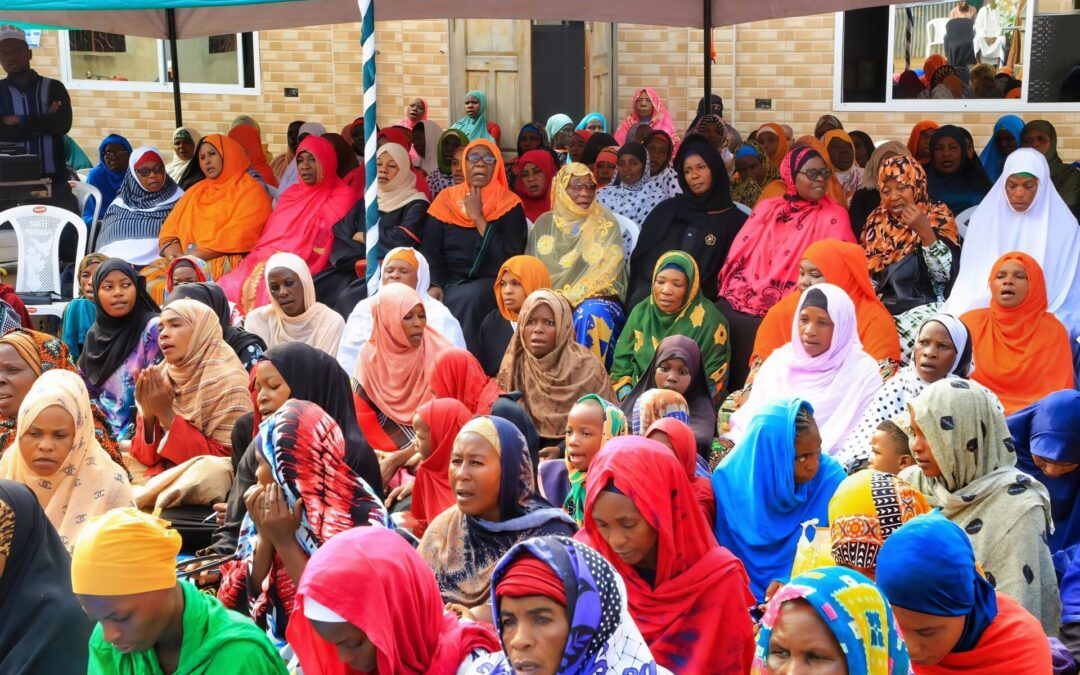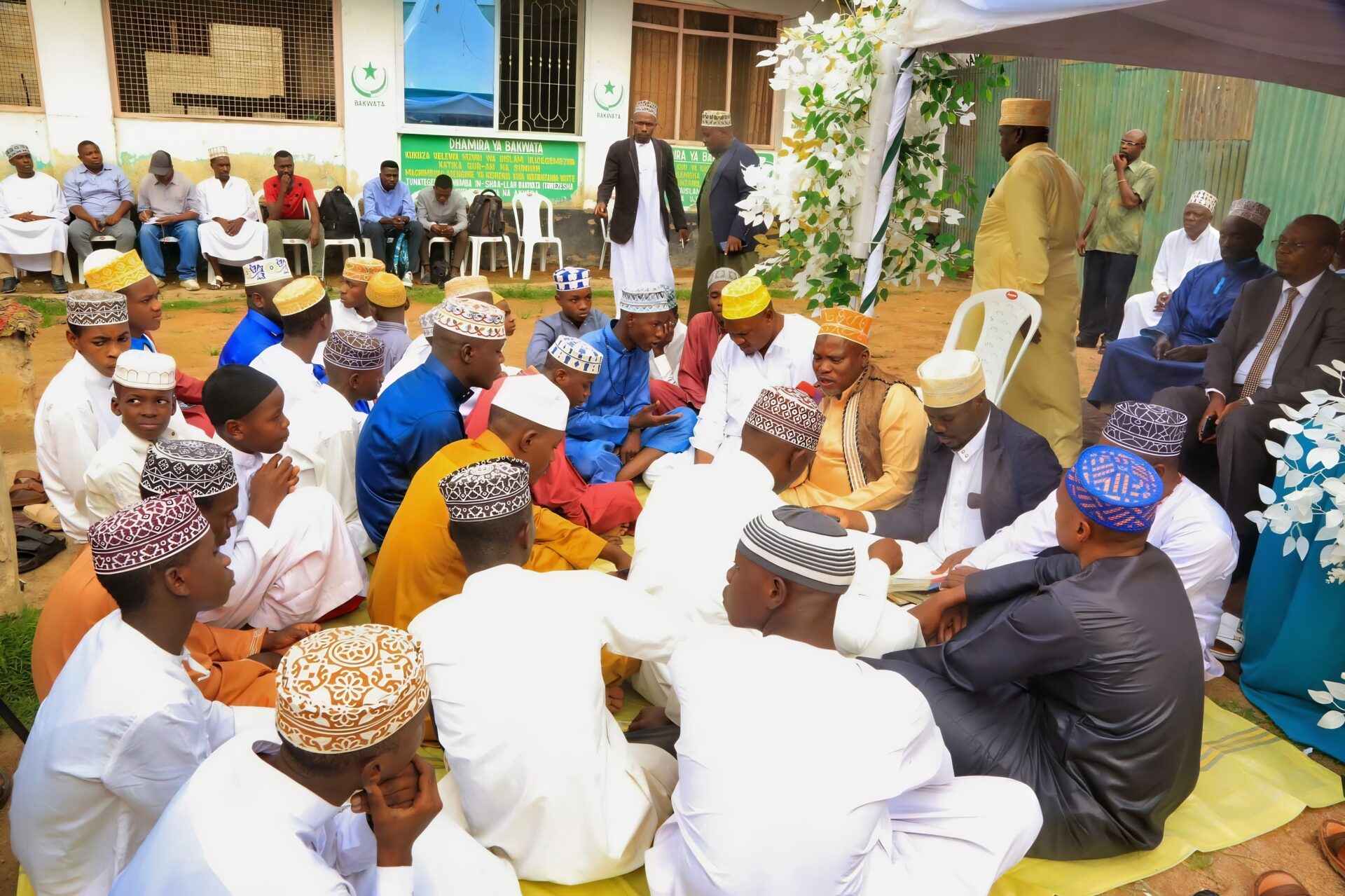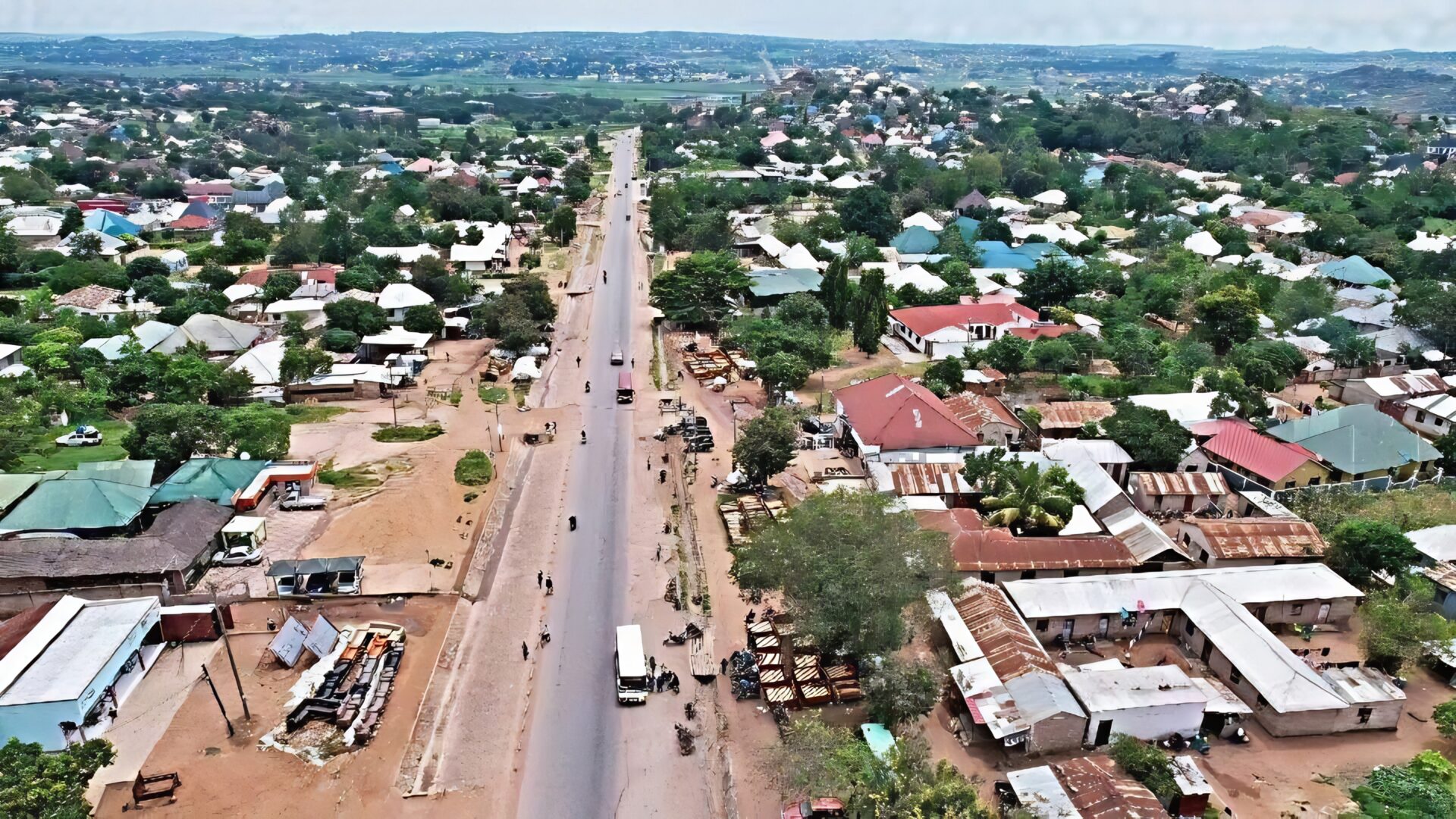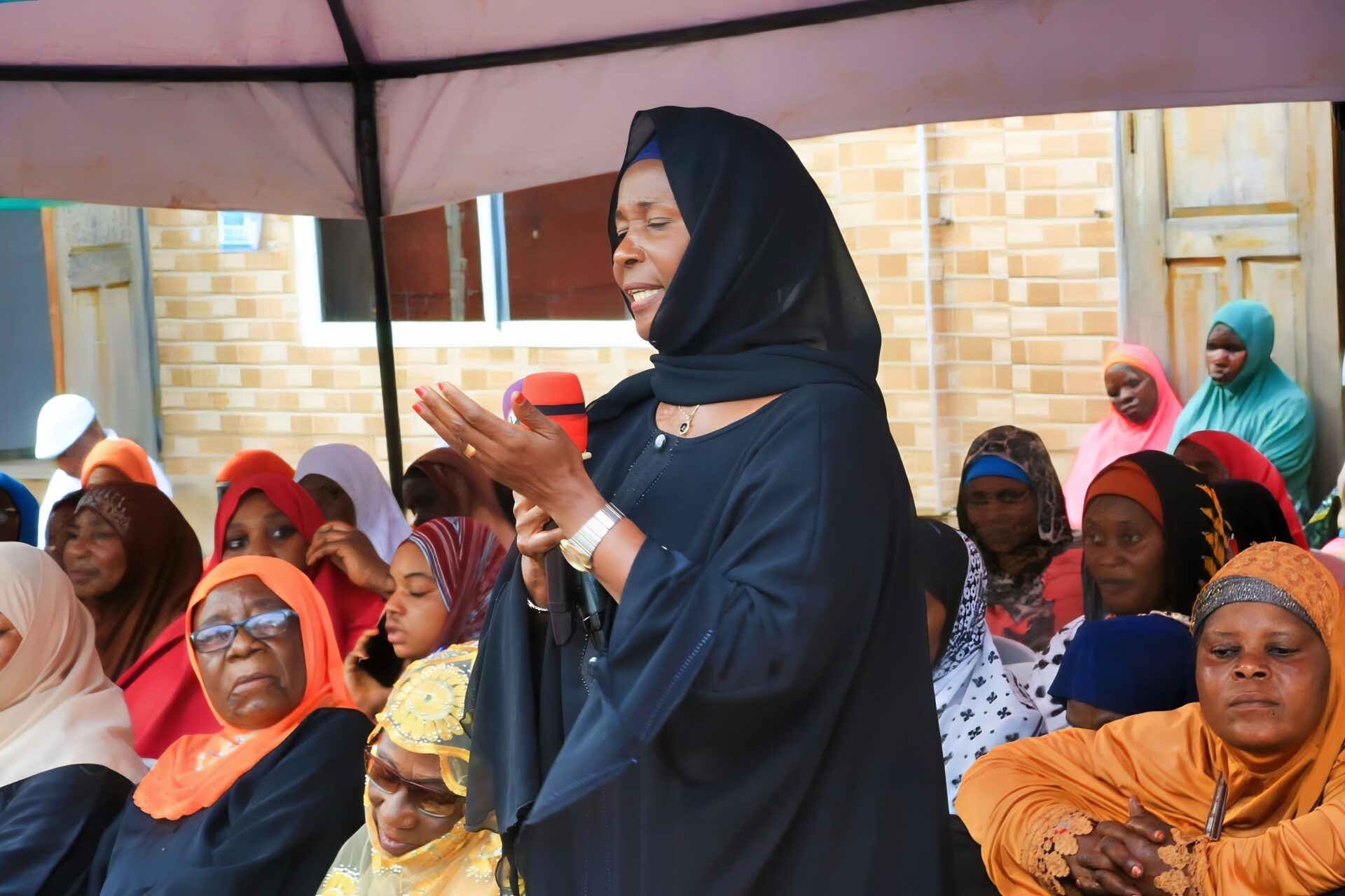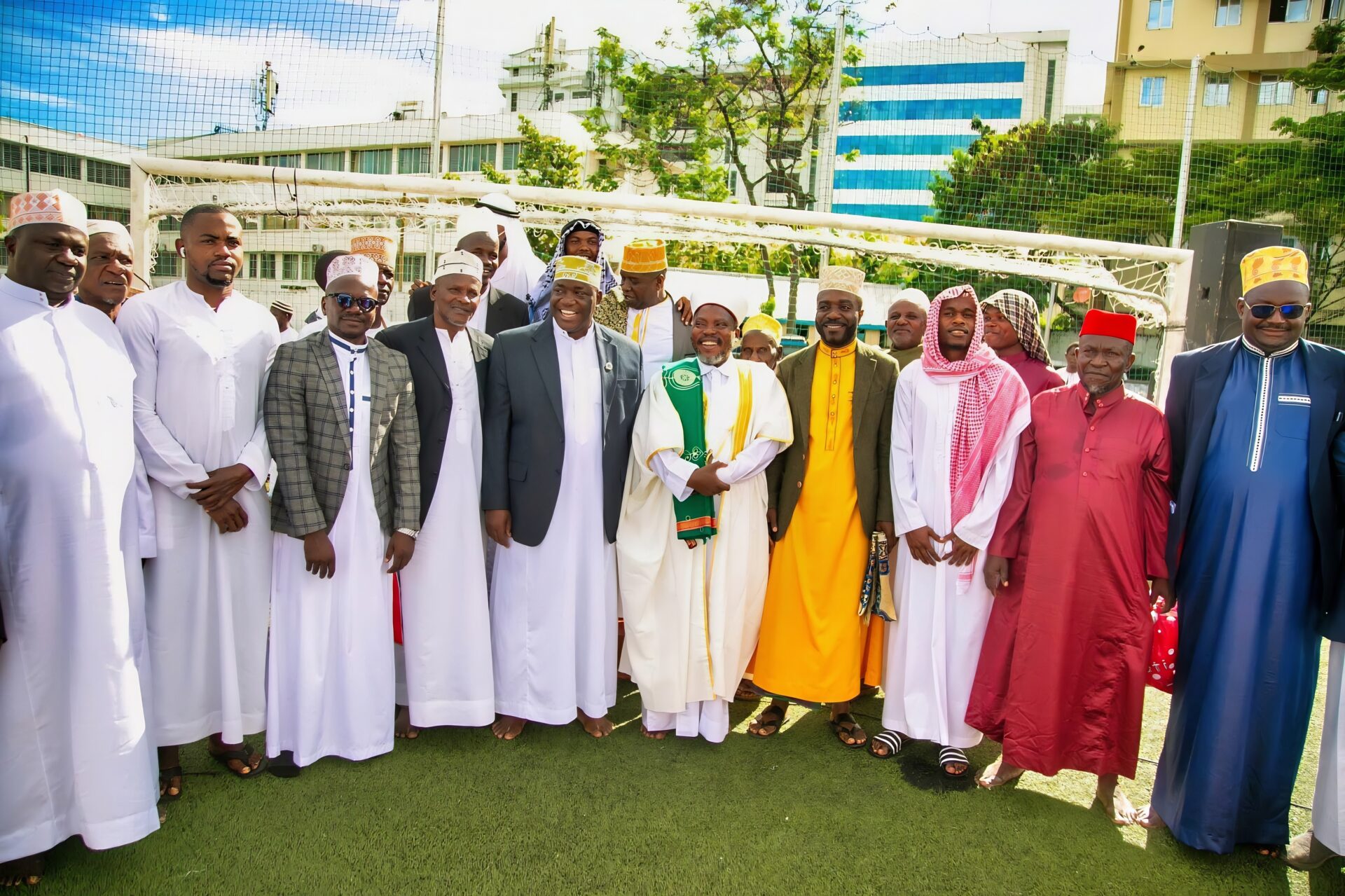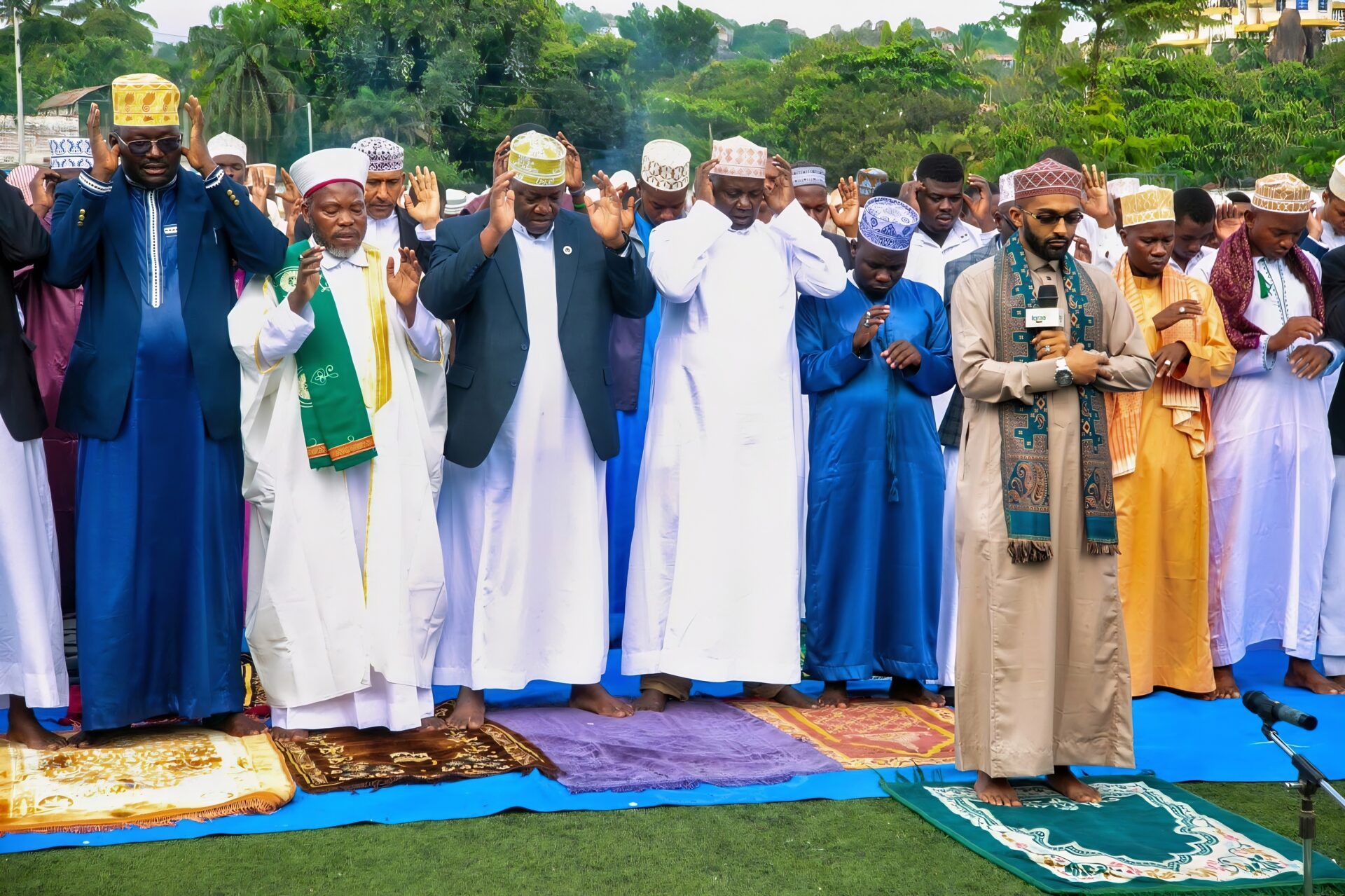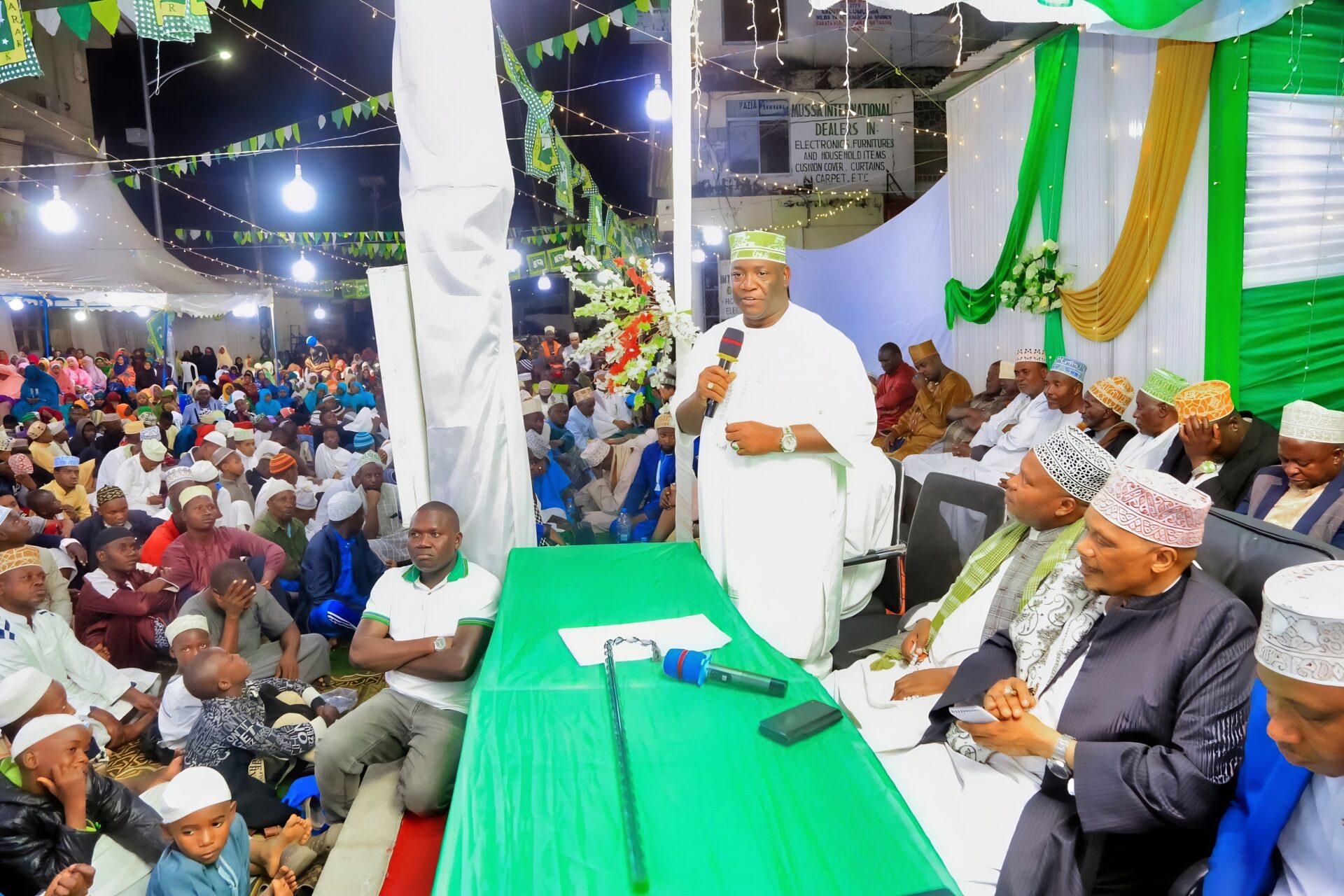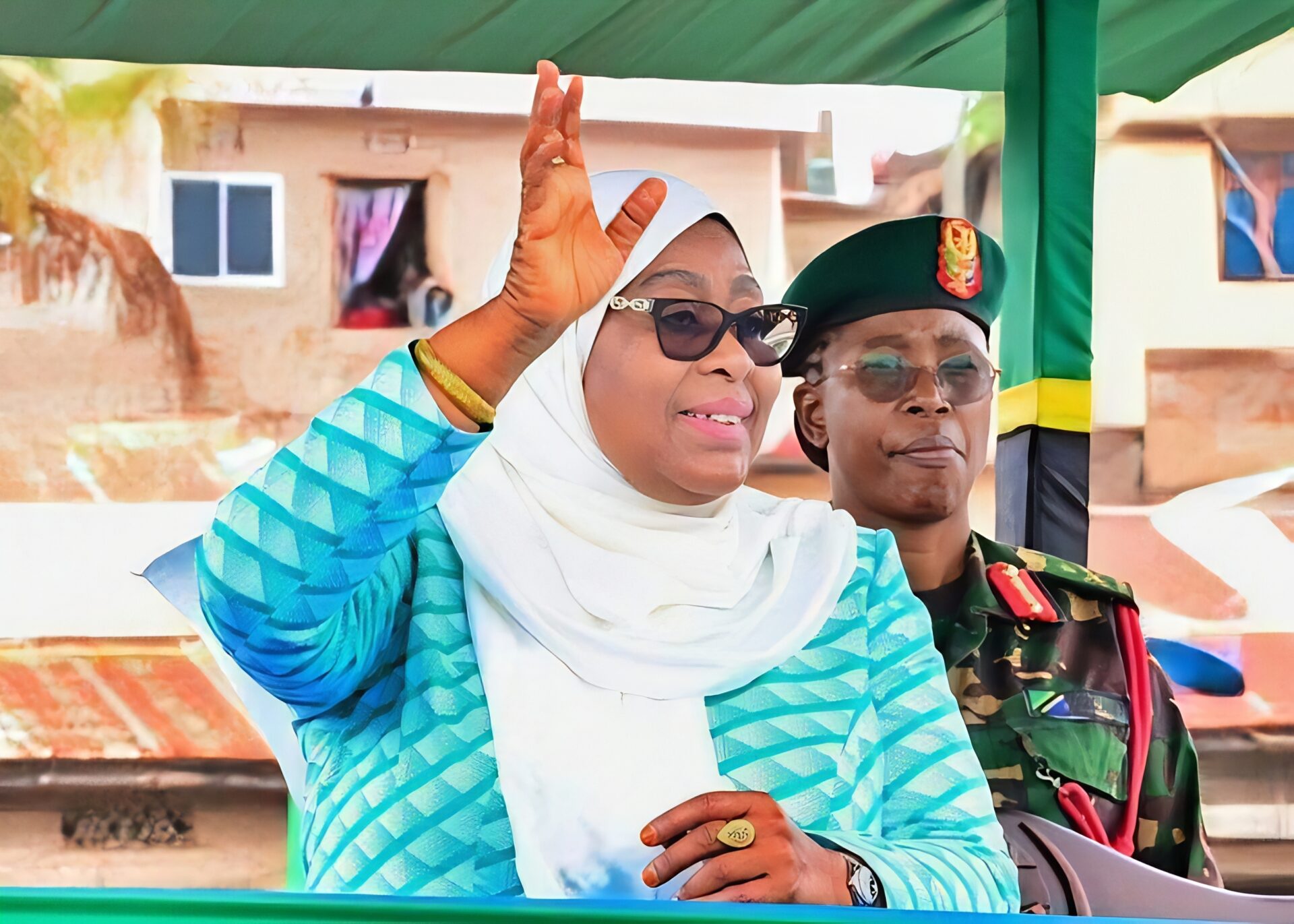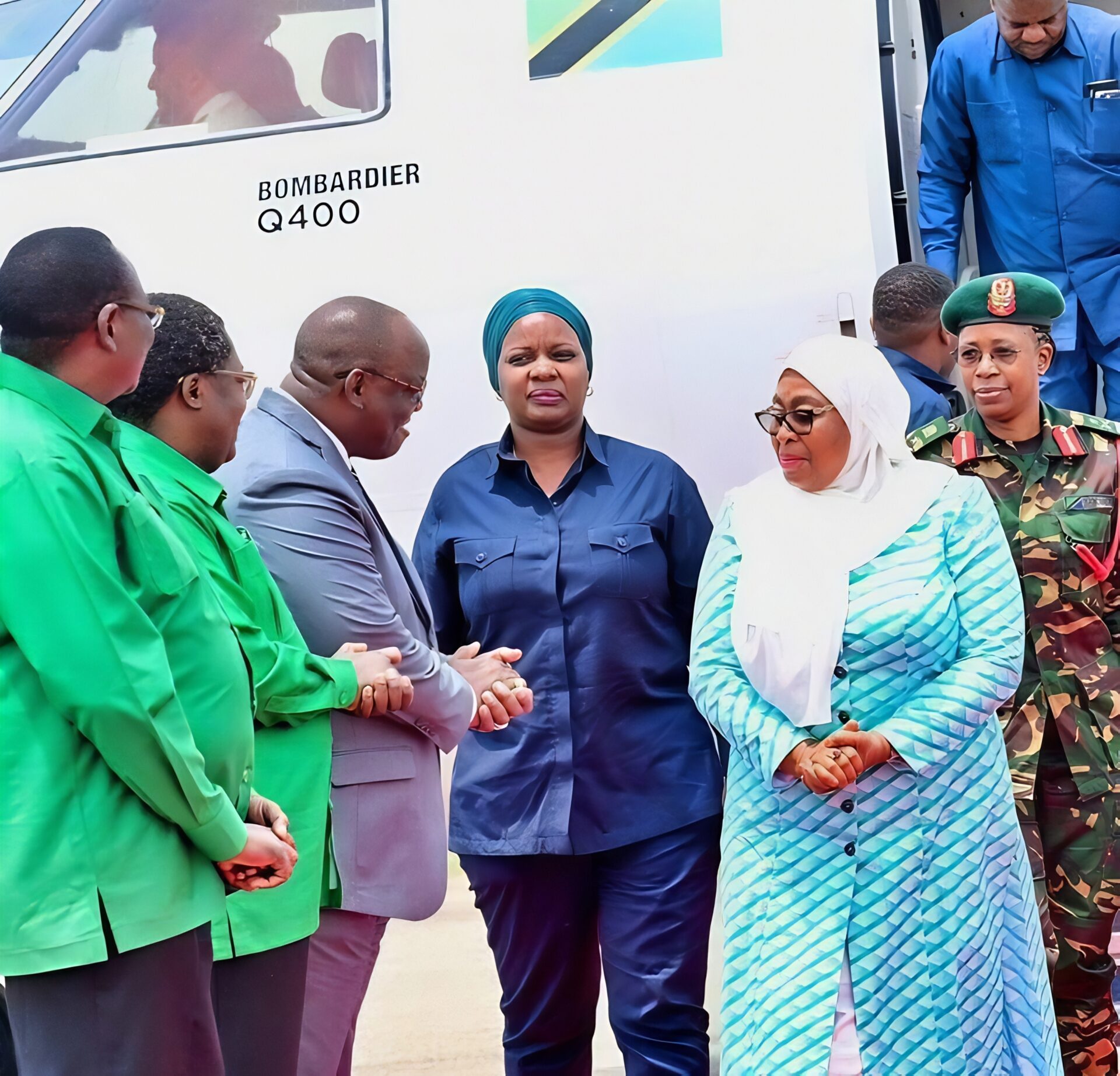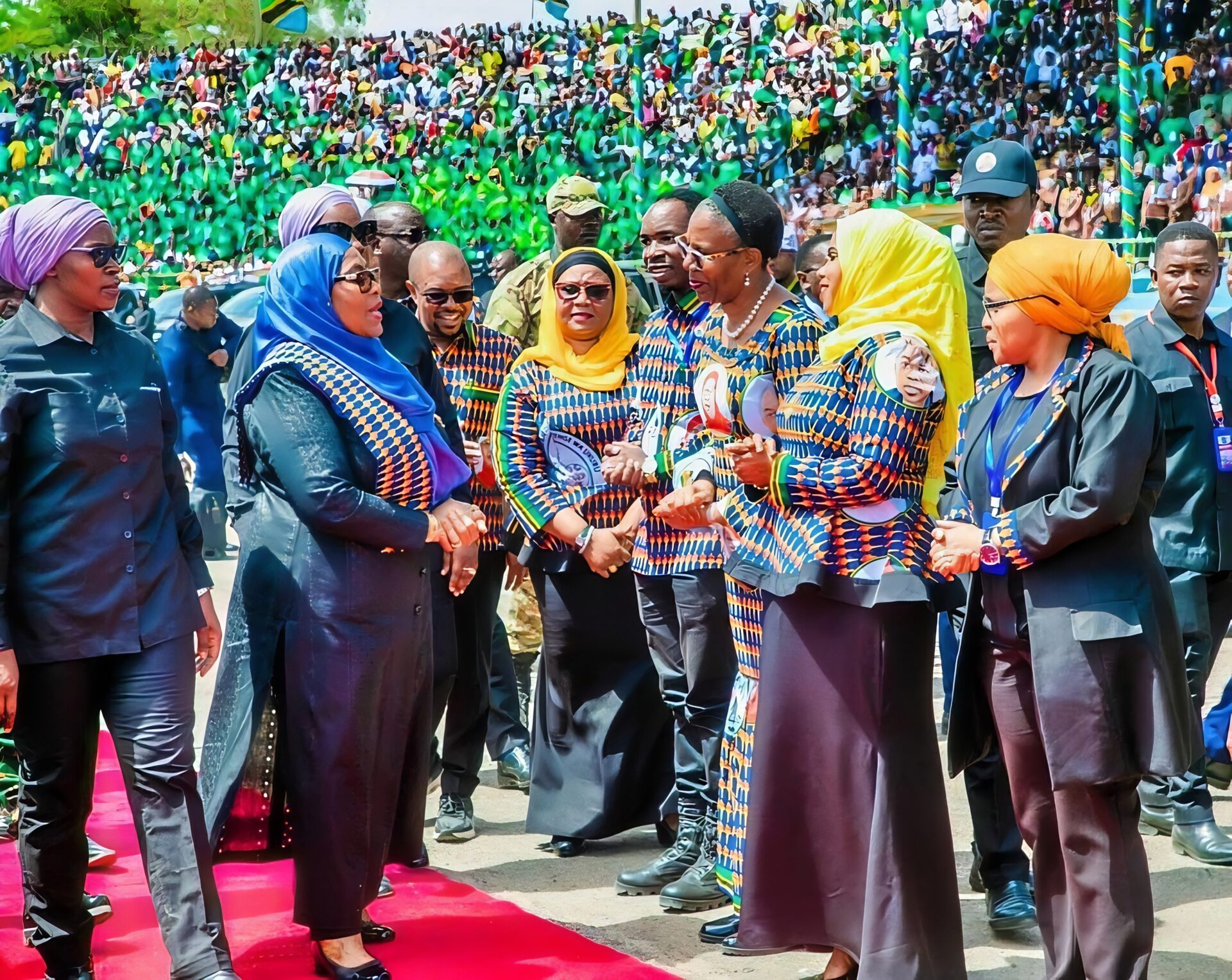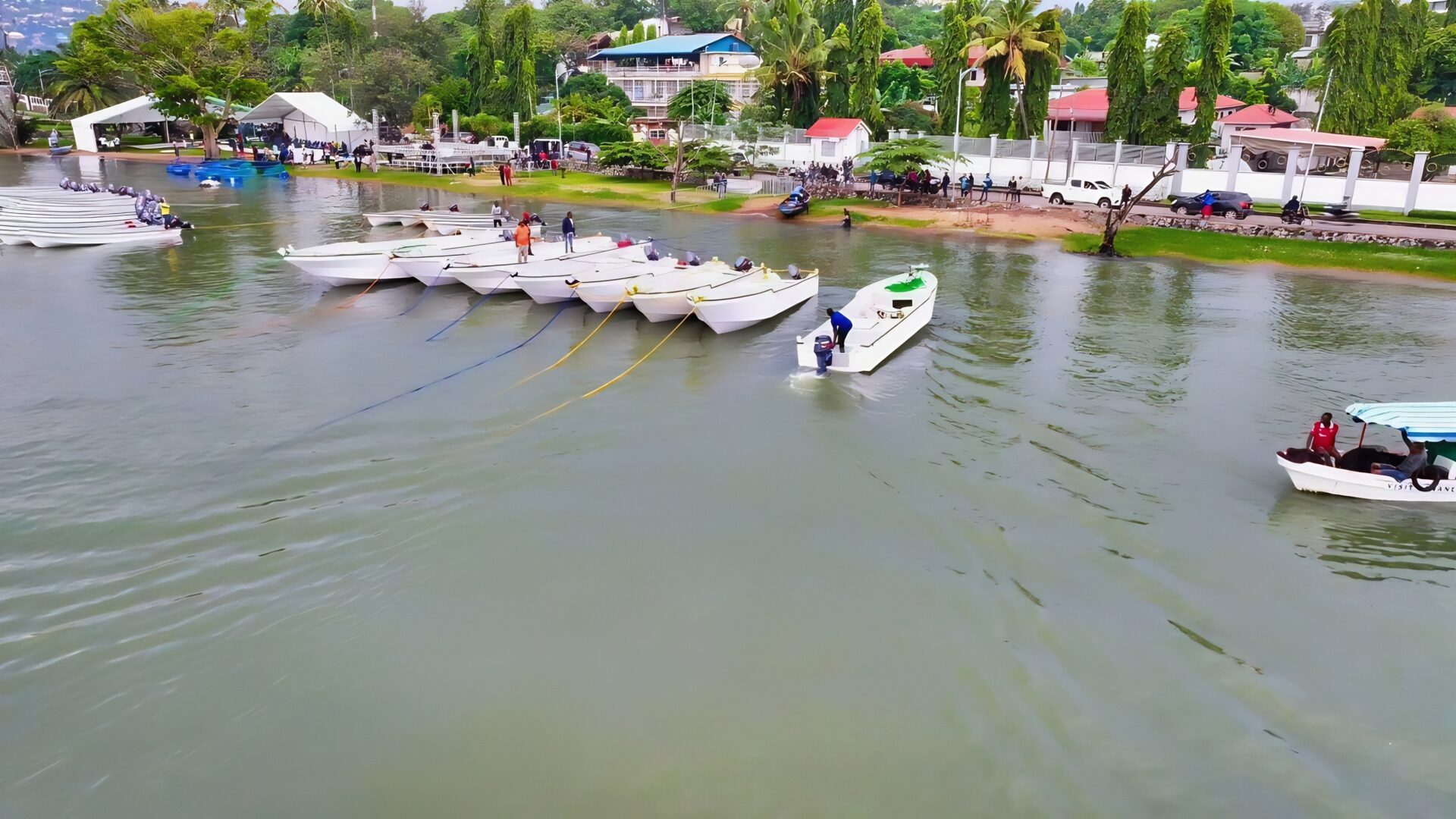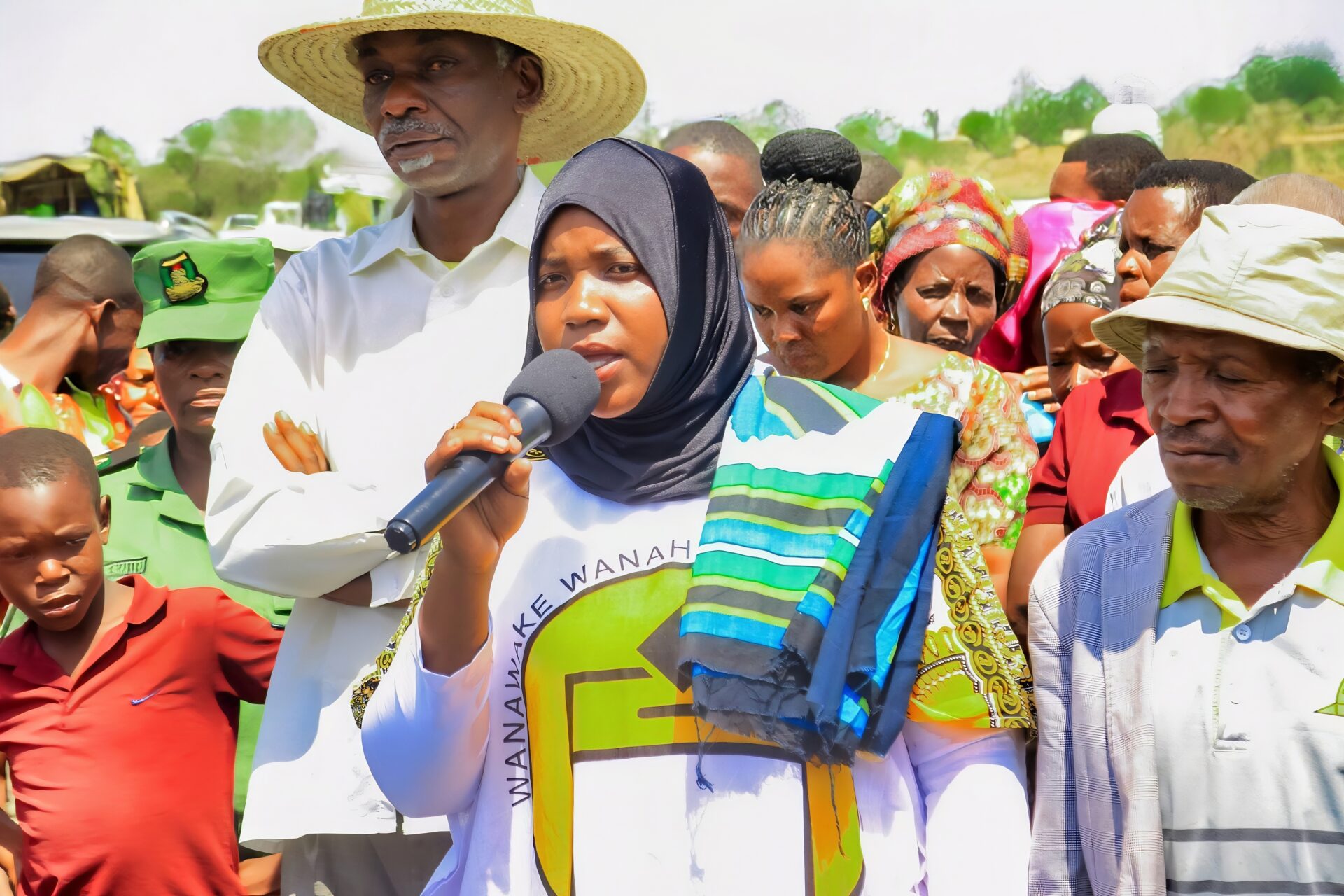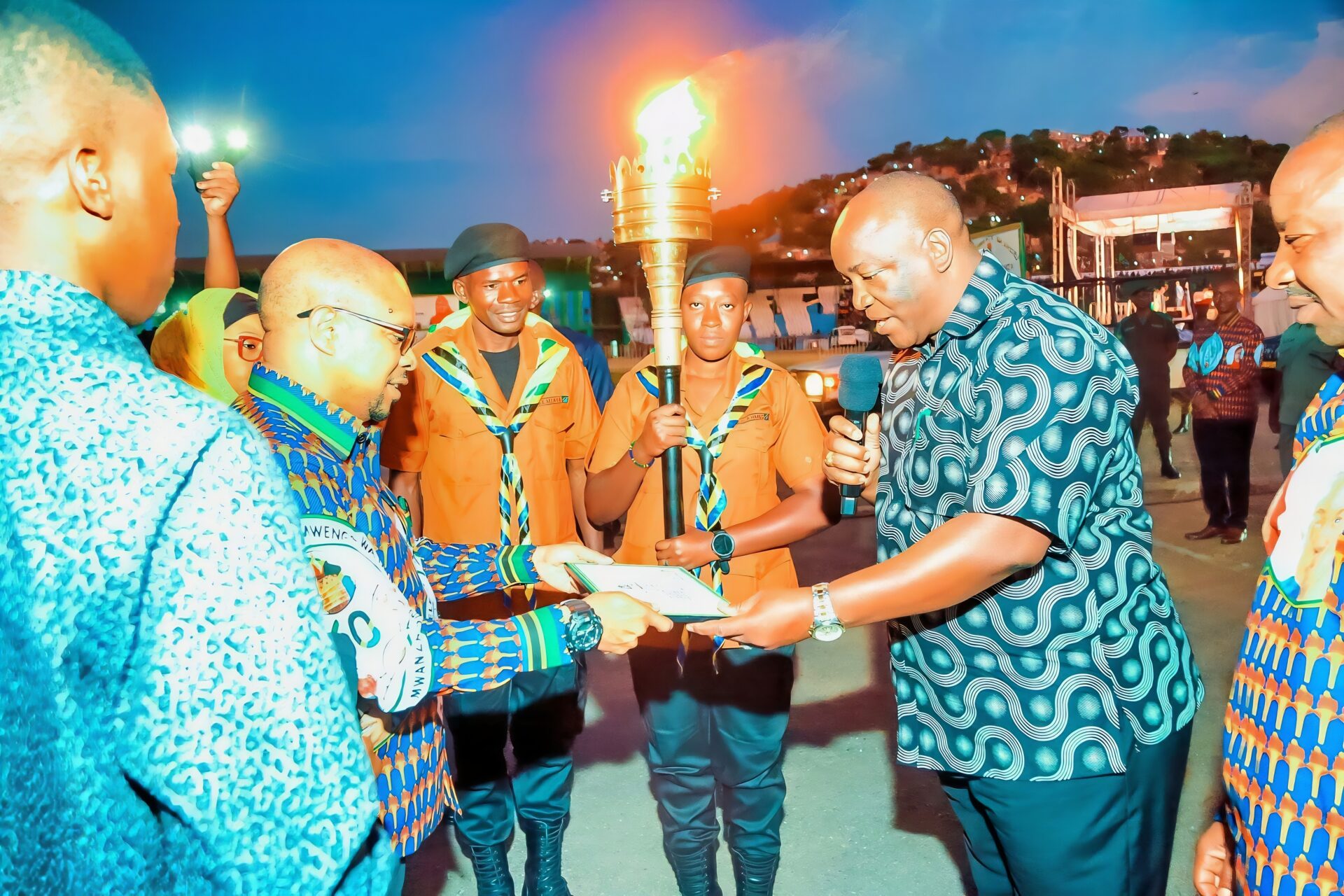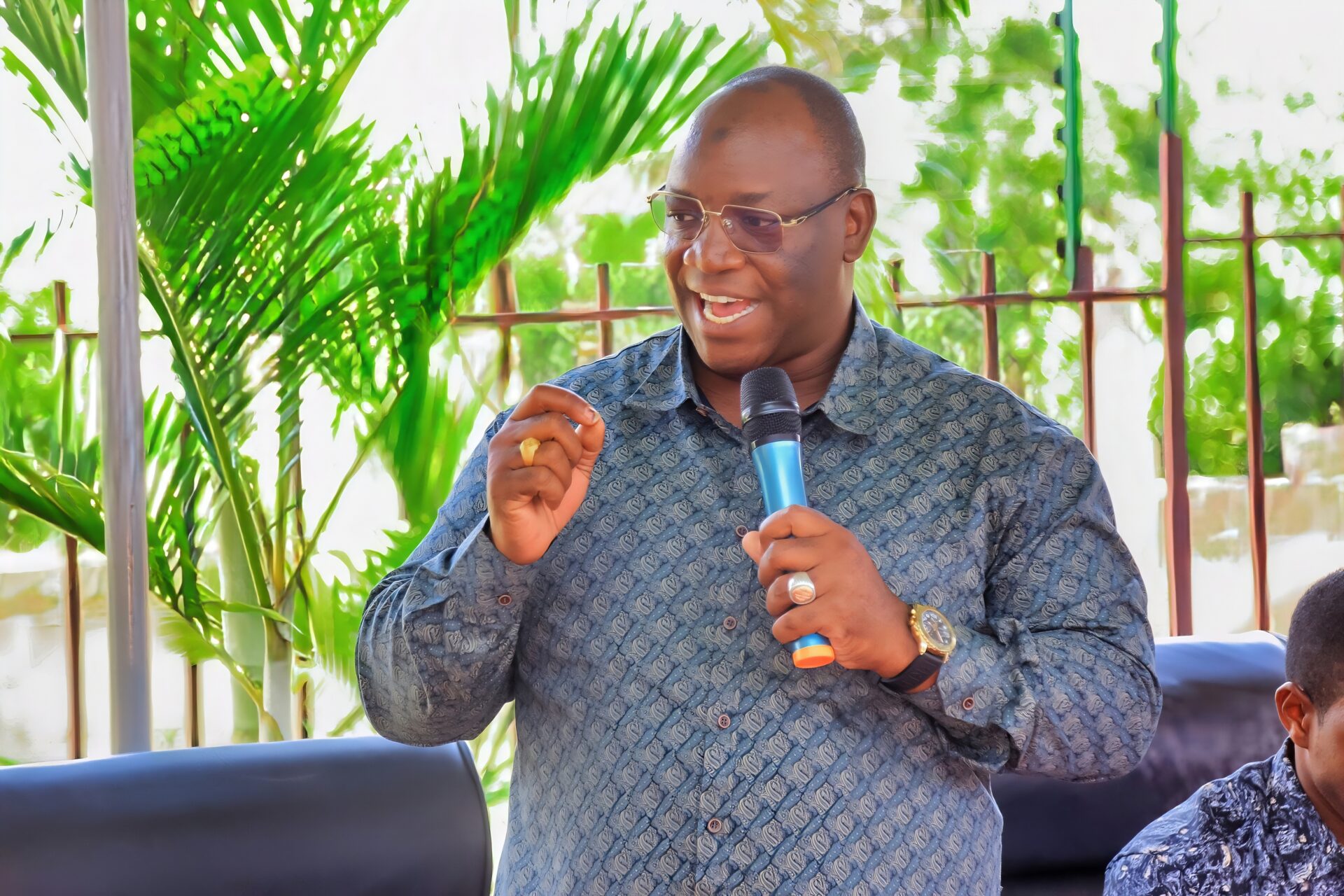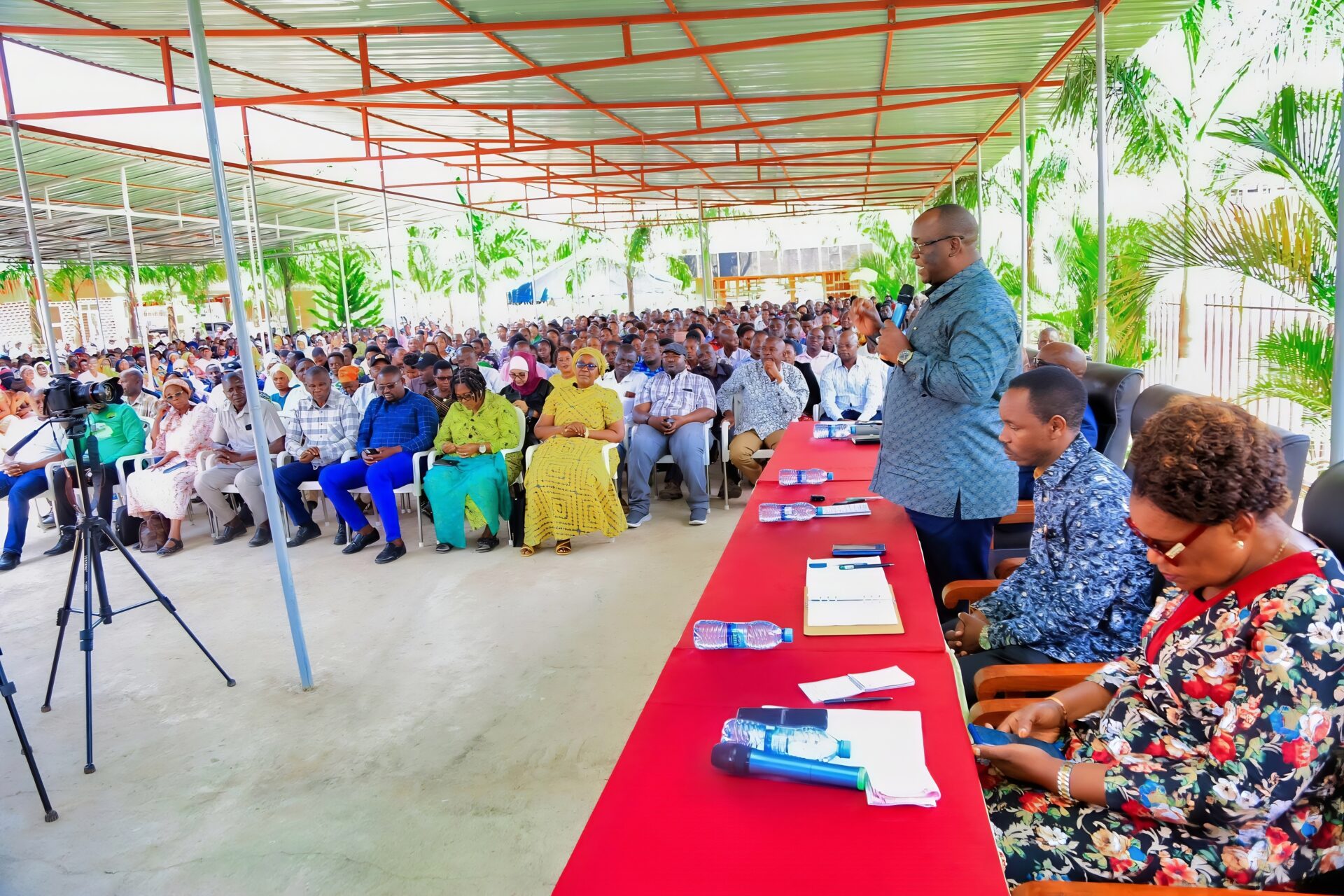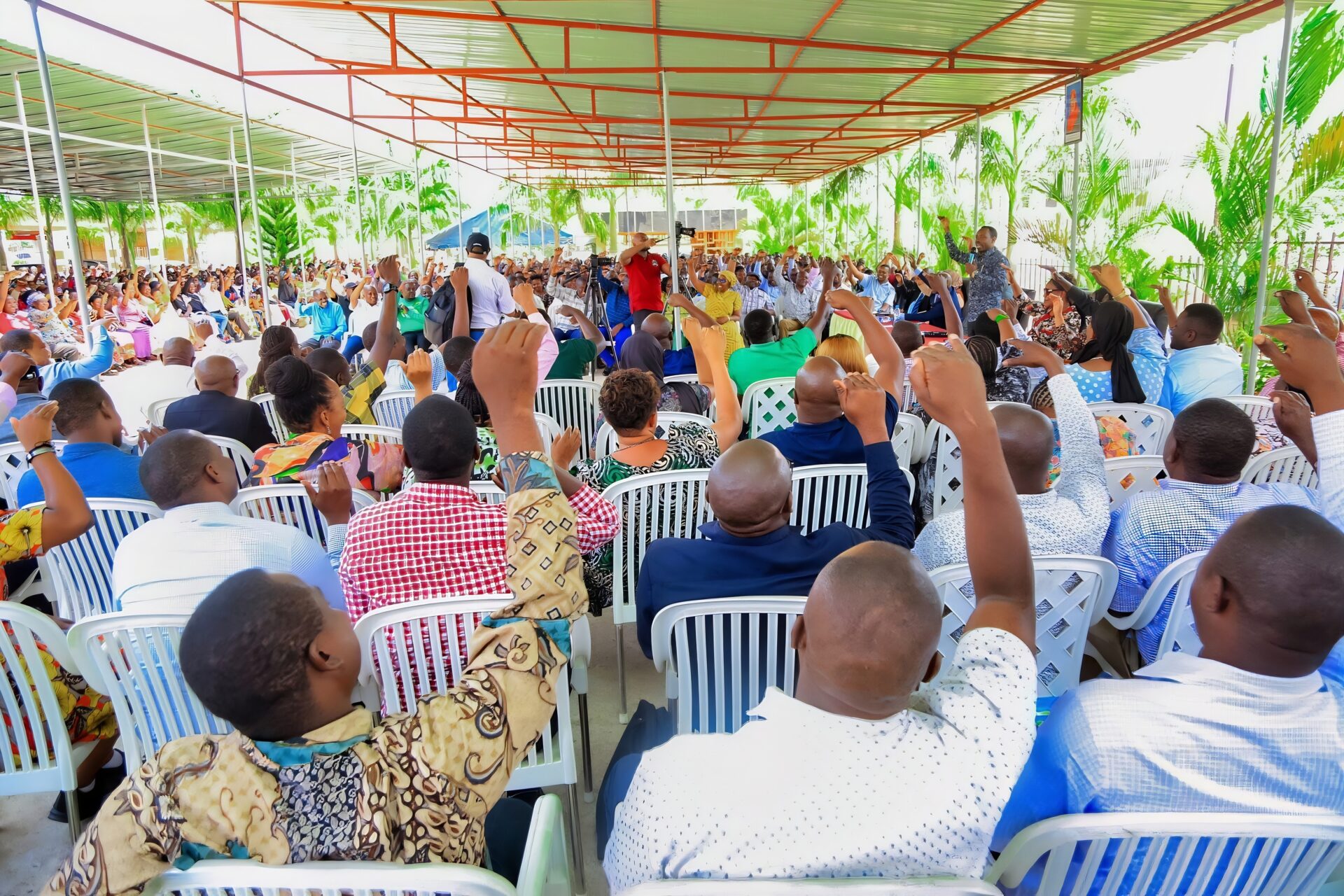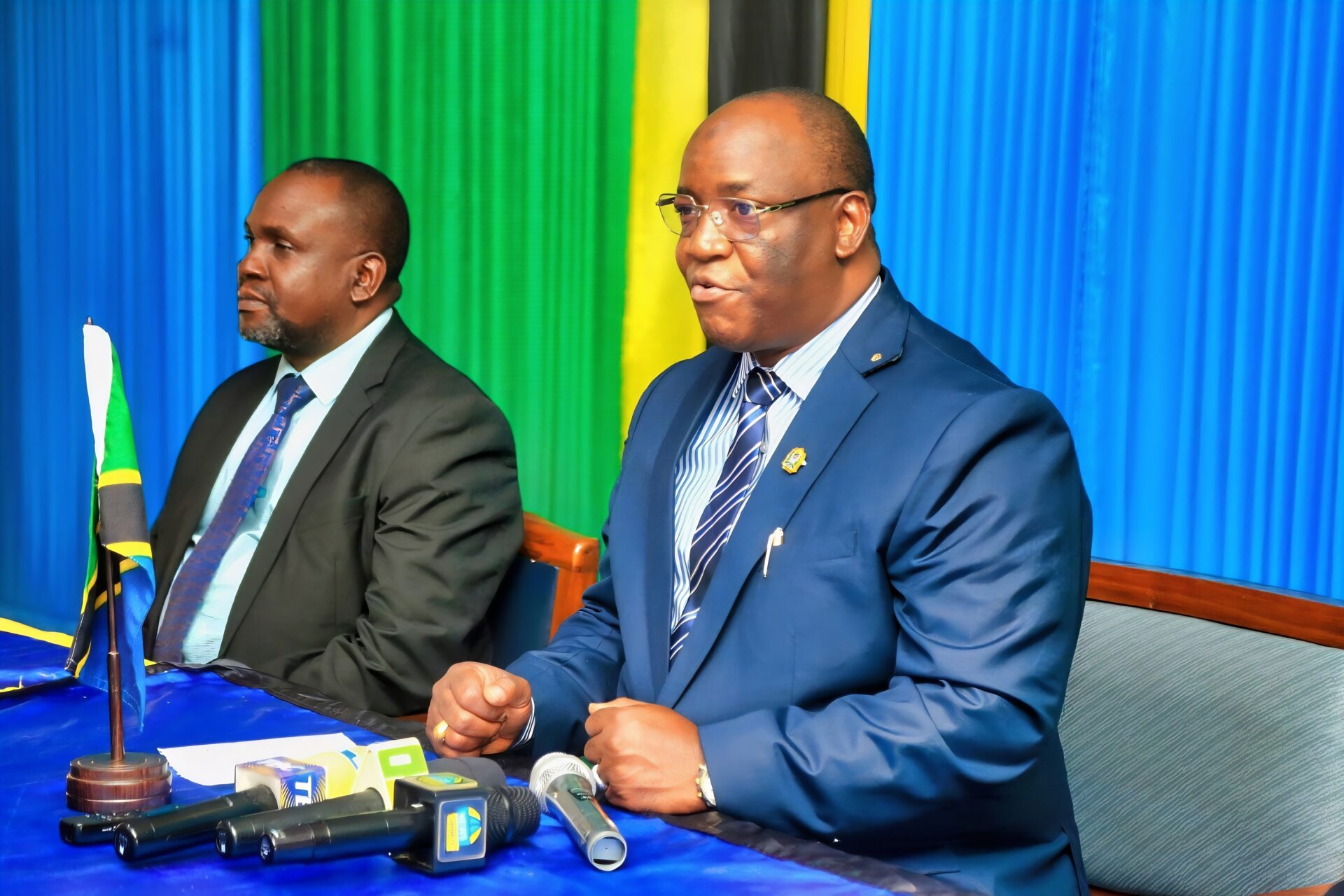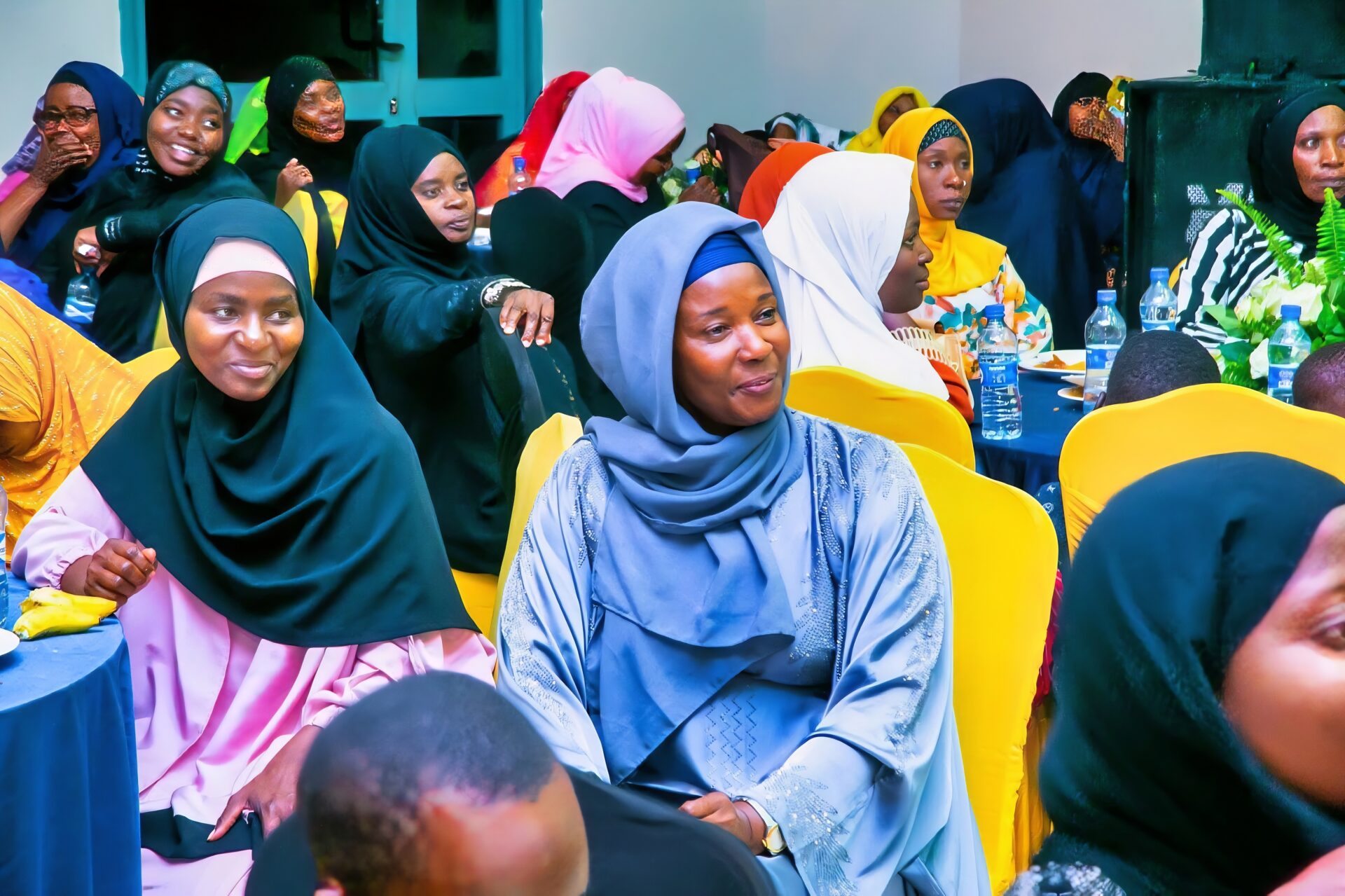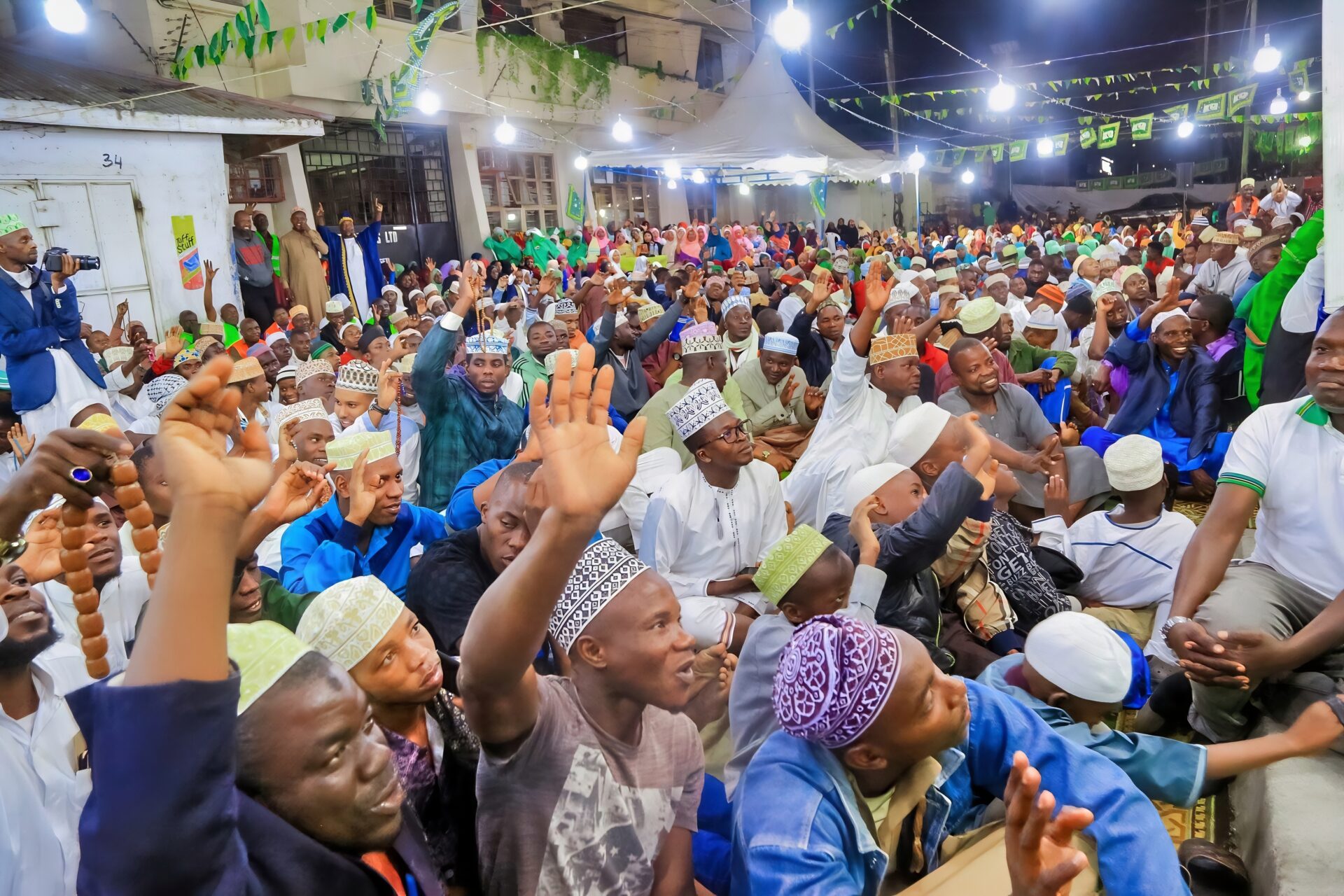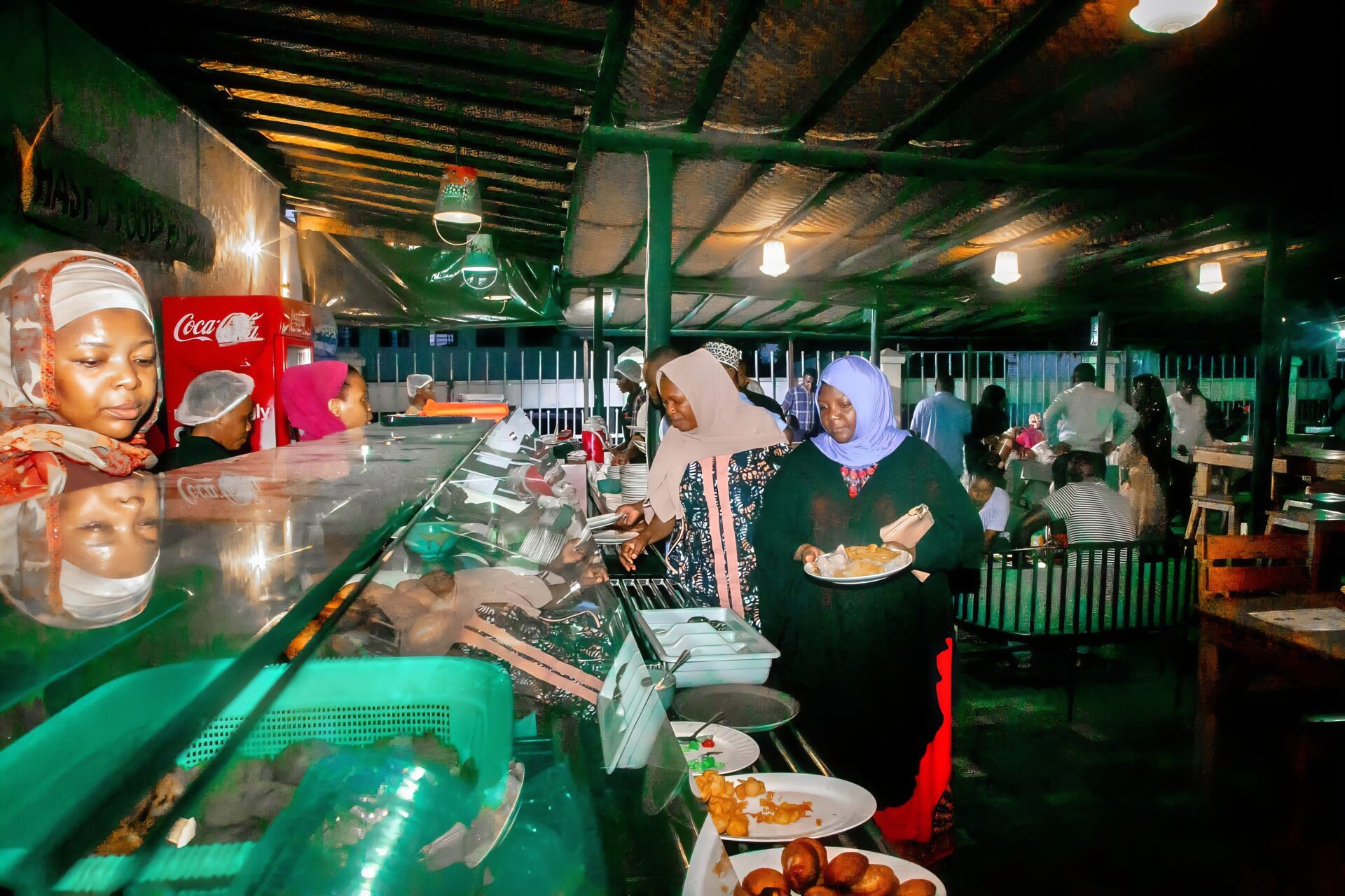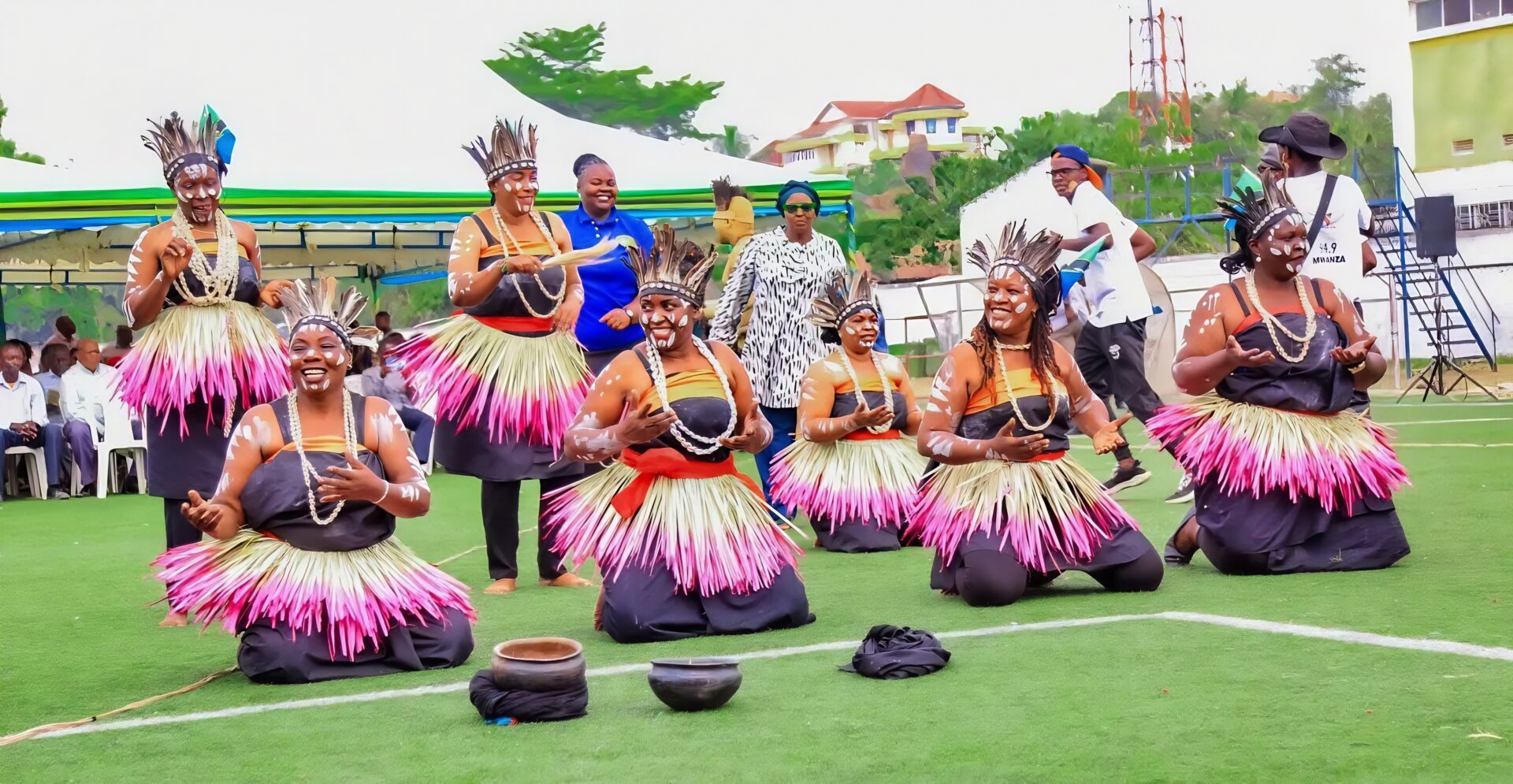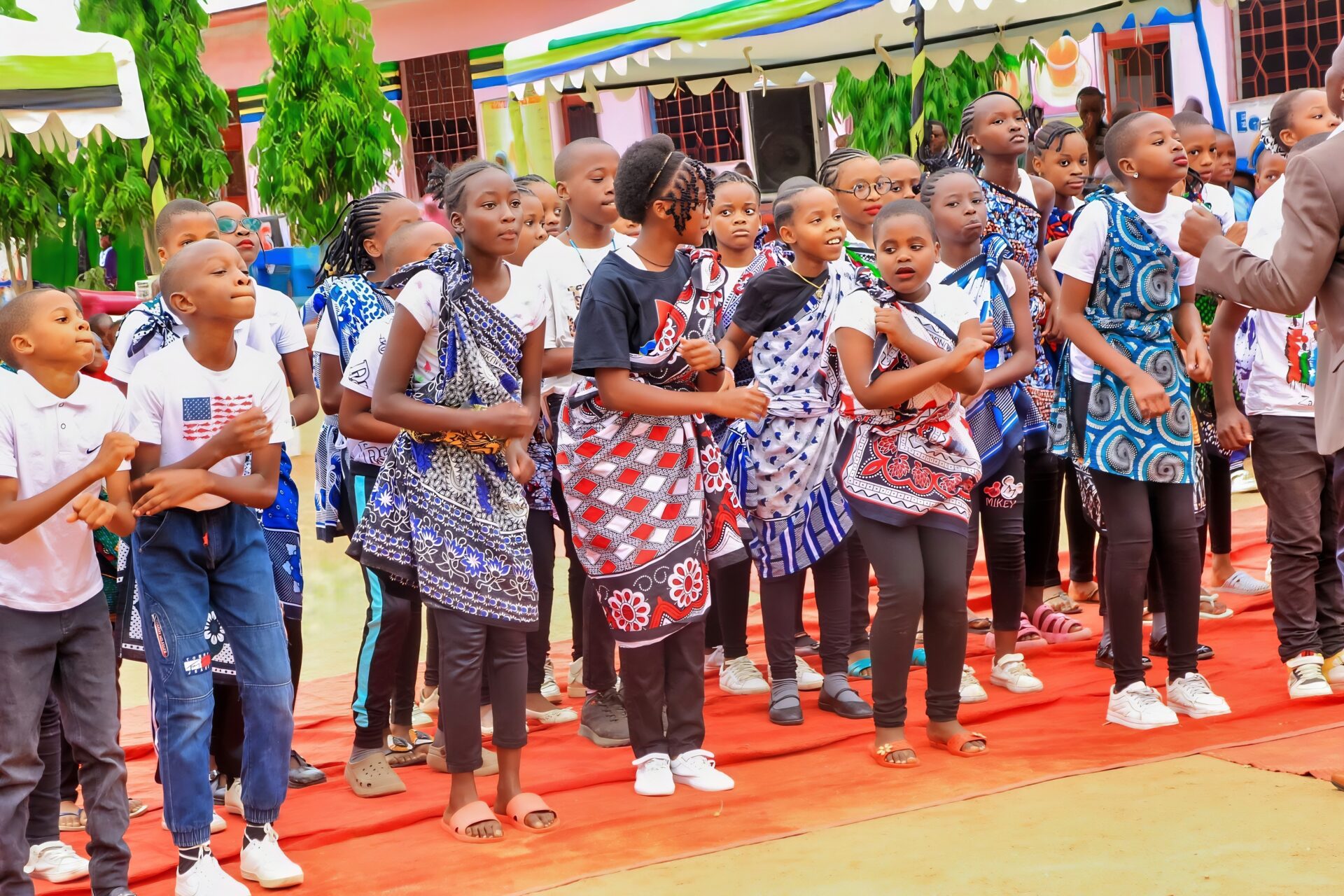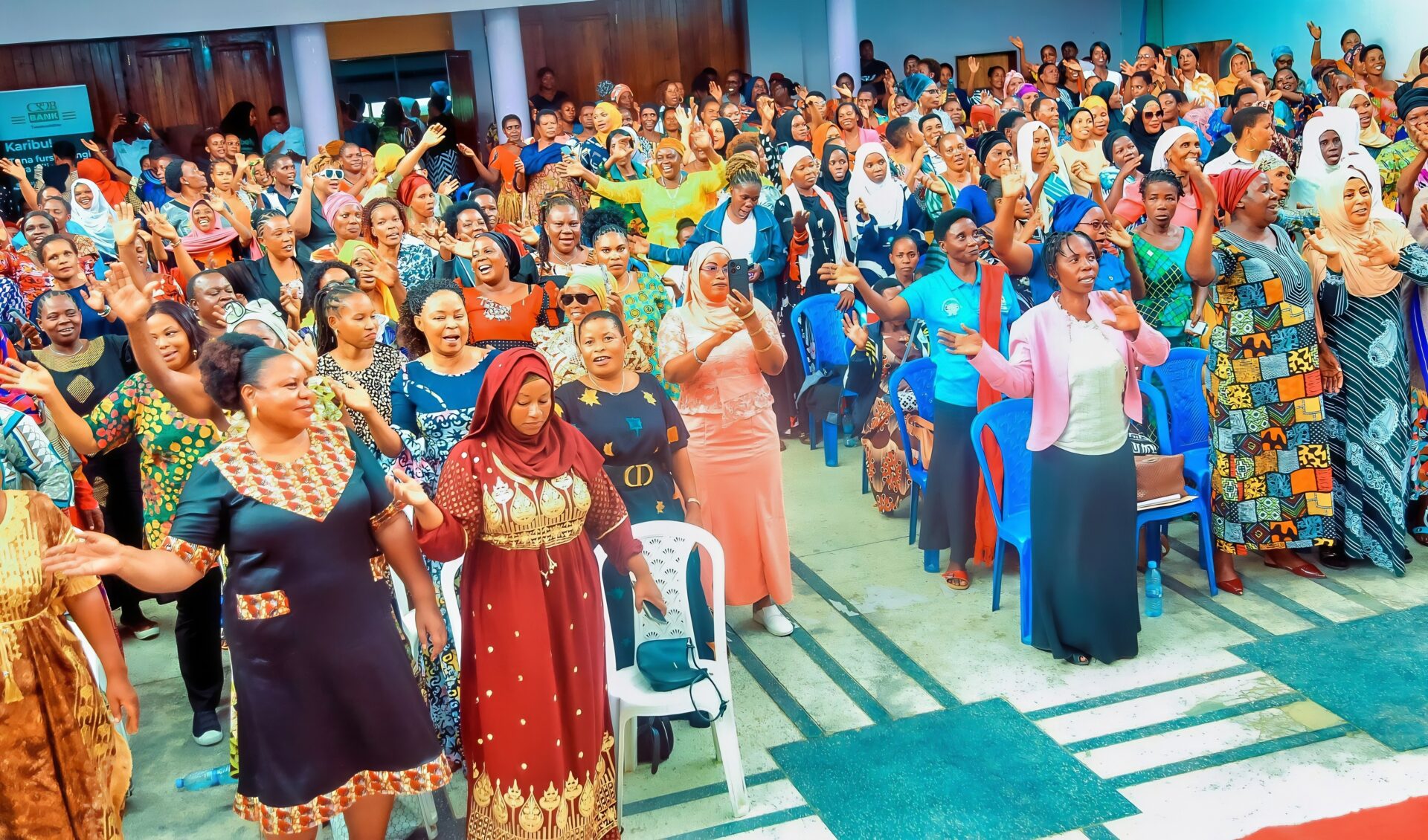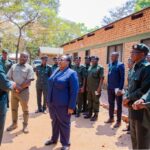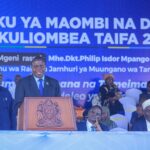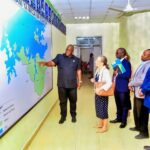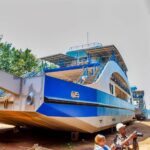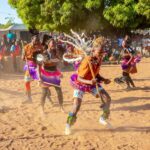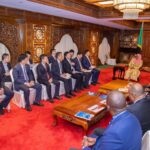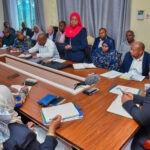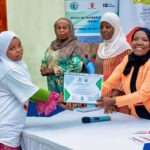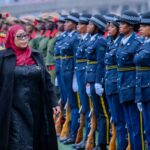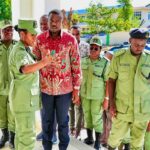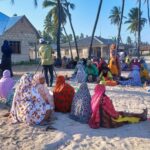A Nation United in Prayer: The Role of Faith and Leadership in Tanzania
In a nation where faith and governance are often intertwined, the recent prayer event for President Dr. Samia Suluhu Hassan at Bakwata grounds in Mbugani, Mwanza City, has attracted significant attention and reflection. The event, organised by BAKWATA (Baraza Kuu la Waislamu Tanzania), was held in Mbugani, Mwanza City, and was attended by a diverse gathering. The event was presided over by Hon. Said Mtanda, the esteemed Regional Commissioner of Mwanza. He expressed heartfelt gratitude to BAKWATA for organising this nationwide initiative. The aim of the event was to invoke divine guidance for the country’s leader.
The event was not just a religious ceremony, but a profound moment that underscored the critical role of spirituality in shaping national unity and leadership.The question must therefore be asked: why does this matter? In a world increasingly divided by political ideologies and social unrest, Tanzania offers a compelling example of how faith can serve as a unifying force.The prayer session, held in one of Tanzania’s most vibrant regions, highlighted the deep-rooted connection between the people, their leaders, and their spiritual beliefs.It is a reminder that governance is not merely about policies and decisions but also about fostering trust, hope, and collective aspirations.
This article will analyse the significance of this event by exploring the rich history of Mwanza City, the pivotal role of BAKWATA in Tanzanian society, and the inspiring leadership of President Dr. Samia Suluhu Hassan.We will also examine the broader implications of such nationwide prayers, shedding light on how they reflect the values and priorities of the Tanzanian people. The Tanzanian citizen and the global observer are both invited to reflect on the intersection of faith, leadership, and community in shaping a nation’s destiny.The layers of this transformative moment in Tanzania’s journey will be unravelled in the following discussion.
Mwanza City: A Historical Tapestry of Growth and Resilience
Mwanza City, situated along the southern shores of Lake Victoria (the world’s second-largest freshwater lake), exemplifies Tanzania’s enduring spirit of resilience and progress. The city is known locally as “the Rock City” due to its rugged terrain, and has evolved from a modest fishing settlement into one of Tanzania’s most dynamic urban centres. Its strategic location on the lake has historically made it a hub for trade, commerce, and cultural exchange, shaping its identity as a gateway to East Africa’s interior.
The city’s origins can be traced back to the pre-colonial era, when indigenous tribes such as the Sukuma and Haya thrived in the region, relying on the lake’s abundant resources for sustenance and trade. The arrival of Arab traders in the 19th century led to Mwanza becoming an integral part of transcontinental trade routes connecting the African interior to the Indian Ocean. These interactions initiated a process of cultural fusion, resulting in a distinctive multicultural character that continues to define the city to this day.
The advent of colonial rule under German and subsequently British administration precipitated profound transformations in Mwanza. Significant developments in infrastructure, including the construction of railways and ports, transformed the city into a pivotal economic outpost. By the mid-20th century, Mwanza had emerged as a vital centre for agriculture, particularly cotton and coffee production, further solidifying its importance to Tanzania’s economy. Following Tanzania’s independence, the city underwent rapid urbanisation, driven by migration from rural areas and industrial growth.
Mwanza, the second-largest city in Tanzania, is renowned for its vibrant markets, thriving industries and dynamic arts scene. The city’s economy is diversified, with sectors ranging from manufacturing and logistics to tourism and education. Notable landmarks such as the Bujora Cultural Centre and the Rock City Mall exemplify the city’s distinctive integration of tradition and modernity. The city’s strategic location in proximity to Lake Victoria sustains fishing communities and attracts visitors eager to experience the region’s natural beauty.
Beyond its economic contributions, Mwanza’s historical significance is evident. It has long been a cultural crucible, a veritable crucible of cultures, religions, and ideas, fostering a spirit of inclusivity and cooperation. Evidence of this can be found in events such as the recent prayer session at Bakwata grounds, which brought together people from all walks of life to unite in a shared purpose. These events underscore Mwanza’s role as a microcosm of Tanzania itself, a nation built on the foundation of unity in diversity.
A thorough examination of the city’s history reveals that Mwanza is not merely a geographical location, but rather a living testament to Tanzania’s historical progression. Its history of growth, adaptability, and resilience mirrors the nation’s broader narrative, making it an ideal setting for events that celebrate faith, leadership, and collective aspirations.
BAKWATA: Bridging Faith and Community in Tanzania
At the core of Tanzania’s Islamic community is BAKWATA (Baraza Kuu la Waislamu Tanzania), an institution whose influence extends far beyond religious boundaries. Established in 1968 under the leadership of the late Sheikh Abeid Amani Karume, the first President of Zanzibar, BAKWATA serves as the Supreme Muslim Council of Tanzania, tasked with overseeing the affairs of Muslims across the nation. Its primary mission is to promote unity, foster religious harmony, and ensure the integration of Islamic principles into the socio-cultural fabric of Tanzanian society.
BAKWATA’s organisational structure is both hierarchical and inclusive, designed to cater to the needs of Tanzania’s diverse Muslim population. The organisation is led by the General Secretary, who is supported by a council of scholars, advisors, and regional representatives. These individuals work collaboratively to address a range of issues, including religious education and community development. The organisation’s network of mosques, madrasas, and outreach programmes plays a pivotal role in shaping the spiritual and intellectual lives of millions of Tanzanians.
A particularly salient achievement of BAKWATA is its capacity to facilitate the interface between religious doctrine and governance. Over time, the organisation has cooperated closely with the Tanzanian government to advocate for policies that are in accordance with Islamic teachings while respecting the country’s secular constitution. Notably, BAKWATA has been instrumental in promoting initiatives such as Zakat collection and distribution, which provide financial support to vulnerable communities. Furthermore, the organization has been a proponent of educational reforms, ensuring the integration of Islamic studies into the national curriculum, thereby cultivating a generation of Tanzanians who are both spiritually grounded and academically proficient.
In Mwanza, the presence of BAKWATA is particularly pronounced. The city’s significant Muslim population has derived considerable benefit from the organisation’s endeavours to construct mosques, provide scholarships and orchestrate community events. A salient example of this commitment is the recent nationwide prayer for President Dr. Samia Suluhu Hassan, which underscores BAKWATA’s commitment to fostering unity and patriotism. The organisation’s efforts to bring together people of different faiths and backgrounds serve to strengthen interfaith relations and reinforce the idea that prayer serves a collective purpose, rather than being limited to individual beliefs.
Furthermore, the scope of BAKWATA’s initiatives extends beyond religious activities to address pressing societal challenges. In Mwanza, for instance, the organisation has initiated campaigns with the objective of combating poverty, improving healthcare access, and empowering women and youth. These initiatives are indicative of BAKWATA’s comprehensive strategy for community development, underscoring the notion that faith must be complemented by tangible action to engender significant societal transformation.
The impact of BAKWATA’s work is evident in the way it has galvanized communities to come together during times of need. This mobilisation of resources and inspiration of collective action has been demonstrated by BAKWATA in various ways, including the organisation of relief efforts during natural disasters and advocacy for peace during periods of political tension. This synergy between faith and community service underscores the organization’s role as a cornerstone of Tanzanian society, transcending divisions and cultivating a sense of shared responsibility.
In essence, BAKWATA serves as a prime exemplar of the transformative potential of faith-based institutions in catalysing positive societal change. Its contributions to Mwanza and Tanzania at large serve to illustrate that religion, when practised with compassion and inclusivity, has the capacity to function as a unifying and progressive force. As Tanzania continues to define its future, BAKWATA maintains its position as a committed partner in the construction of a future characterised by harmony, equity and shared prosperity.
President Dr. Samia Suluhu Hassan: A Visionary Leader Guiding Tanzania’s Future
Dr. Samia Suluhu Hassan, Tanzania’s first female president, has emerged as a beacon of hope and stability in a nation navigating complex challenges. Since assuming the presidency in March 2021 following the untimely passing of her predecessor, President John Magufuli, Dr. Suluhu Hassan has been a catalyst for change, demonstrating a pragmatic, inclusive, and compassionate approach to leadership. Her presidency signifies a landmark moment not only for Tanzania but also for the broader African continent, as she shatters gender barriers and establishes a precedent for women in leadership roles.
Born on June 27, 1959, in Zanzibar, Dr. Hassan’s ascension to the highest office in the land is a testament to her resilience and dedication. She commenced her career as a schoolteacher before transitioning into public service, where she rapidly ascended the hierarchical ladder. Her tenure as Minister of State in the Vice President’s Office for Union Affairs and Environment demonstrated her capacity to balance administrative acumen with a profound commitment to environmental sustainability, a hallmark of her leadership style.
In her capacity as President, Dr. Hassan has prioritised the promotion of unity, the revitalisation of the economy, and the enhancement of international engagement. Among her initial actions was the initiative to ameliorate tensions with the opposition, thereby indicating a deviation from the confrontational politics of the past. By reopening dialogue channels and fostering reconciliation, she has sought to heal divisions and restore trust in democratic processes. In terms of the economy, the focus of her administration has been on the revitalisation of sectors that have been particularly hard hit by the consequences of the global pandemic, namely tourism and agriculture. In addition to this, policies have been implemented with a view to attracting foreign investment and creating employment opportunities.
On the global stage, Dr. Hassan has established Tanzania as a reliable partner in addressing pressing issues such as climate change, trade, and regional security. Her participation in high-profile forums, including the United Nations General Assembly and the Commonwealth Heads of Government Meeting, underscores her commitment to elevating Tanzania’s profile on the global stage. Her emphasis on diplomacy and collaboration has garnered her praise both domestically and internationally, reinforcing her image as a leader who understands the interconnectedness of nations.
The nationwide prayer organised by BAKWATA is indicative of the profound respect and admiration commanded by Dr. Hassan throughout Tanzania. Citizens from all walks of life have rallied behind her, viewing her leadership as a source of inspiration and reassurance. The prayer session in Mwanza, attended by Hon. Said Mtanda and other dignitaries, symbolises the collective hope that divine guidance will illuminate her path as she navigates the complexities of governance.
Dr. Hassan’s leadership style is marked by humility, empathy, and a willingness to listen, a marked contrast to the often rigid and authoritarian approaches of previous administrations. Her decision to engage openly with civil society, the media, and international partners has fostered an environment of transparency and accountability. A notable illustration of this approach was the government’s management of the pandemic, which placed significant emphasis on science-based interventions, thereby garnering widespread approval and strengthening public confidence.
Beyond the tangible achievements of her policy agenda, Dr. Hassan’s personal qualities have profoundly resonated with the Tanzanian populace. Her composed demeanour and measured responses to crises have instilled a sense of calm and stability in a nation that has become accustomed to turbulence. There is ample evidence to suggest that she has cultivated a warm rapport with ordinary citizens, whether visiting rural communities or attending local events, thereby reinforcing her image as a leader who is genuinely connected to the people she serves.
In this way, as Tanzania looks to the future, Dr. Samia Suluhu Hassan’s leadership offers a blueprint for sustainable development and inclusive governance. Her capacity to foster unity among diverse groups, coupled with her unwavering commitment to progress, positions her as a transformative figure in the nation’s history. The prayers offered at Bakwata grounds are not merely expressions of faith but affirmations of trust in her vision for a brighter, more equitable Tanzania. In acknowledging her leadership, Tanzanians are also celebrating the potential of their nation to overcome challenges and achieve greatness.
Mbugani: A Vibrant Hub of Culture, Commerce, and Community Spirit
The Mbugani area of Mwanza City is a notable locale due to its status as a vibrant neighbourhood that encapsulates the essence of urban life in Tanzania. The area is distinguished by its vibrant streets, heterogeneous population and prosperous local economy. It has long been a focal point for residents and visitors alike. Its strategic location near the shores of Lake Victoria enhances its appeal, providing visitors with spectacular vistas and a refreshing breeze that contrasts with the city’s otherwise rugged terrain.
The area’s significance in Mwanza is deeply rooted in its history as a commercial and cultural hub. Historically, the area served as a trading post for fishermen, farmers, and merchants, who converged here to exchange goods and ideas. Over time, Mbugani evolved into a bustling marketplace, attracting traders from across the region and beyond. In the contemporary era, the streets of Mbugani are lined with commercial establishments offering a wide range of products, from fresh produce to handmade crafts, reflecting the entrepreneurial spirit that is a defining feature of the neighbourhood.
A distinctive feature of Mbugani is its cultural diversity. The area is home to a mosaic of ethnic groups, including the Sukuma, Haya, and Jita, alongside sizable Muslim and Christian communities. This diversity is celebrated through festivals, ceremonies, and communal gatherings that foster a sense of harmony and unity among the inhabitants. A recent example of this was the prayer session for President Dr. Samia Suluhu Hassan at Bakwata grounds in Mbugani, which served to underscore the neighbourhood’s commitment to unity in the face of diversity. The event attracted participants from a wide range of religious and cultural backgrounds, thereby serving to reinforce Mbugani’s reputation as a locale where differences are embraced rather than used to create division.
It is evident that religious institutions play a pivotal role in shaping Mbugani’s identity. The presence of various religious institutions, including mosques, churches, and traditional shrines, is a testament to the harmonious coexistence of different faiths. These institutions serve as anchors for the community’s spiritual and social life, fostering a sense of unity and cohesion. Of particular note are Bakwata grounds, which have become a symbolic venue for interfaith dialogue and collective action. The selection of this locale for the national prayer reflects its importance as a nexus for individuals of diverse faiths to congregate in unity.
From an economic perspective, Mbugani serves as a microcosm of Mwanza’s broader dynamism. Small-scale businesses coexist with larger enterprises, creating opportunities for employment and entrepreneurship. The presence of street vendors selling grilled fish, fruits, and snacks contributes to the area’s vibrant atmosphere, while artisans showcase their craftsmanship in open-air markets. The economic vibrancy of Mbugani is further complemented by the presence of schools, healthcare facilities, and community centres, ensuring that the neighbourhood remains a well-rounded and self-sustaining entity.
Socially, Mbugani is known for its strong sense of community. The sense of community is evident in the residents’ pride in their neighbourhood and their active involvement in initiatives that aim to enhance living conditions and promote cohesion. Community-led initiatives, including clean-up drives and educational workshops, underscore the proactive spirit that characterises Mbugani. During the prayer event, this spirit was on full display as volunteers worked tirelessly to ensure the gathering ran smoothly, demonstrating the power of collective effort.
In numerous ways, Mbugani symbolises the resilience and adaptability that are characteristic of Mwanza City as a whole. Its capacity to harmoniously integrate tradition with modernity, commerce with culture, and diversity with unity serves as a microcosm of Tanzania’s broader narrative. As Mwanza continues to grow and evolve, Mbugani serves as a prime example of how urban neighbourhoods can function as agents of positive change, fostering connections that transcend geographical boundaries and enrich the lives of those residing within its confines.
Hon. Said Mtanda: A Pillar of Leadership in Mwanza
It is evident that Hon. Said Mtanda, the Regional Commissioner of Mwanza, has come to the fore as a distinguished figure in Tanzania’s administrative landscape, embodying the qualities of integrity, dedication, and visionary leadership. Appointed to his position , Mtanda’s tenure has been characterised by a steadfast commitment to the socio-economic development of Mwanza and the resolution of the multifaceted challenges faced by its residents. His position as Regional Commissioner places him at the vanguard of governance in one of Tanzania’s most populous and economically significant regions, where he oversees the implementation of national policies, coordinates development initiatives, and ensures the welfare of the local population.
Mtanda’s background is deeply rooted in public service, having served in various capacities before his current appointment. Prior to assuming the role of Regional Commissioner, he held pivotal positions in both local government and administrative roles, where he garnered invaluable experience in the management of intricate issues, ranging from infrastructure development to social welfare. His expertise in governance, coupled with his profound understanding of Mwanza’s unique dynamics, has endowed him with the tools necessary to tackle the region’s pressing challenges, ranging from unemployment and poverty to inadequate healthcare and education systems.
A particularly salient contribution of Mtanda’s is his emphasis on participatory governance. He has consistently engaged with community leaders, stakeholders, and ordinary citizens to ensure that their voices are heard and incorporated into decision-making processes. This inclusive approach has fostered a sense of ownership among Mwanza’s residents, empowering them to actively contribute to the region’s development. For instance, under his leadership, numerous town hall meetings and public forums have been organised to discuss critical issues such as urban planning, environmental conservation, and economic empowerment.
The recent prayer event for President Dr. Samia Suluhu Hassan at Bakwata grounds in Mbugani further underscores Mtanda’s ability to unite diverse groups around a common cause. In his capacity as the host and keynote speaker, he delivered an emotive address in which he thanked BAKWATA for organising the nationwide initiative and highlighted the importance of faith in guiding leadership. His address was met with profound resonance by the attendees, a testament to his adeptness in articulating shared values and aspirations. By leveraging such events to strengthen communal bonds, Mtanda has reinforced his reputation as a leader who prioritises unity and collaboration.
In addition to his administrative duties, Mtanda has led several high-impact projects with the aim of transforming Mwanza’s infrastructure and economy. Among these is the ongoing expansion of road networks with a view to alleviating traffic congestion and improving connectivity within the city. Renewable energy sources, such as solar and wind power, have been identified as a key area of investment by Mtanda, in recognition of their potential to address Mwanza’s energy needs sustainably. Furthermore, his efforts to enhance agricultural productivity through modern farming techniques and irrigation systems have yielded tangible benefits for rural communities, boosting food security and livelihoods.
The scope of Mtanda’s leadership extends beyond the realm of physical infrastructure to encompass the social and cultural dimensions of development. He has been a vocal advocate for education reform, pushing for increased funding and improved facilities in schools across the region. Vocational training programmes have been supported, thereby empowering youth with skills aligned with market demands, reducing unemployment rates and fostering economic resilience. Moreover, his initiatives to improve healthcare access, particularly in underserved areas, have saved countless lives and enhanced the quality of care available to Mwanza’s residents.
It is this author’s opinion that the distinguishing factor in this case is the genuine concern demonstrated by Hon. Said Mtanda for the well-being of those he serves. Whether visiting communities affected by flooding or inaugurating new development projects, he maintains a hands-on approach that engenders a profound sense of endearment among the people of Mwanza. His accessibility and willingness to listen have earned him widespread respect and admiration, making him not just an administrator but a trusted ally in the region’s journey toward progress.
As Mwanza continues to grow and face evolving challenges, Hon. Said Mtanda remains a steadfast pillar of leadership, guiding the region with wisdom, compassion, and determination. His contributions are a testament to the transformative power of dedicated public service, inspiring others to follow in his footsteps and work collectively toward a brighter future for all.
A Nationwide Movement of Faith and Unity
The nationwide prayer organised by BAKWATA in honour of President Dr. Samia Suluhu Hassan is a powerful manifestation of Tanzania’s collective aspirations and shared values. Spanning urban, suburban, and rural areas, this initiative united Tanzanians from diverse backgrounds in a moment of spiritual contemplation and communal solidarity. The prayer sessions, which were held simultaneously in multiple locations, underscored the profound role of faith in shaping the nation’s identity and fostering a sense of unity amid diversity.
The prayer sessions, which took place simultaneously in numerous locations throughout the country, were organised with the aim of calling for divine guidance to illuminate the leadership of President Hassan as she navigates the complexities of governance. The participants’ prayers encompassed requests for wisdom, strength, and resilience, which were deemed essential for navigating the nation through challenges such as economic recovery, social cohesion, and global uncertainties. This collective invocation reflected a deep-seated belief in the transformative power of prayer, not merely as a personal act of devotion but as a communal endeavour to uplift the nation.
The event, both in terms of its size and coordination, was nothing short of remarkable. From the vibrant streets of Dar es Salaam to the tranquil landscapes of Arusha, a multitude of religious institutions, including mosques, churches, and community centres, opened their doors to accommodate the influx of attendees. In Mwanza, the Bakwata grounds in Mbugani served as a focal point, drawing thousands of participants who gathered to offer their supplications. Similar scenes unfolded in Zanzibar, Dodoma, and beyond, with each location contributing to a tapestry of faith and hope that spanned the entire country.
The inclusivity of this initiative was a key factor in its overall impact. While the organisation of the event was led by BAKWATA, individuals of all faiths were welcomed to participate, thereby reinforcing Tanzania’s long-standing tradition of religious harmony. The event saw Christians, Muslims, and adherents of traditional African beliefs participating collectively, unified by a shared objective. This interfaith dimension of the prayer sessions conveyed a potent message: that Tanzania’s strength lies in its diversity and its capacity to identify common ground despite the presence of differences.
The nationwide prayer also served as a platform for addressing broader societal issues. Participants were encouraged to engage in introspection and reflection on themes such as peace, justice, and equality, with a call to action directed towards leaders to prioritise the well-being of all citizens. The sermons and speeches delivered during the sessions emphasised the importance of ethical governance, compassion, and accountability, challenging both leaders and citizens to uphold the values that define a progressive society.
For a significant proportion of Tanzanians, the prayer event functioned as a wellspring of profound emotional and spiritual rejuvenation. In a period of uncertainty and rapid change, it provided a sense of stability and reassurance. The event fostered a sense of community and strengthened interpersonal bonds, with attendees sharing moments of reflection and fostering communal bonds. The event also attracted significant attention on social media, with a wealth of posts and videos capturing its essence, thereby amplifying its reach and impact far beyond the physical gatherings themselves.
The success of the nationwide prayer also highlighted the organisational prowess of BAKWATA and its partners. The coordination of such an extensive initiative necessitated meticulous planning, effective communication, and collaboration with local authorities, religious leaders, and community organisations. The volunteers’ contributions were instrumental in ensuring the smooth logistics of the event and in fostering a welcoming and supportive environment for the participants. This collective effort is a manifestation of the spirit of collective action that characterises Tanzania’s approach to confronting challenges.
The nationwide prayer event thus stands as a testament to the profound and enduring power of faith to galvanize collective action and nurture a sense of unity. The event served as a poignant reminder to Tanzanians and the global community of the profound strength that can emerge from uniting in pursuit of a shared purpose, especially in the face of adversity. The resonant echoes of prayer that reverberated throughout the nation conveyed a unifying message of hope, underscoring the notion that Tanzania’s future is not solely determined by external policies and decisions, but rather is shaped by the collective aspirations and dreams of its diverse population.
Mwanza Region: A Cornerstone of Tanzania’s Economic and Cultural Landscape
The Mwanza Region, located in northwestern Tanzania, occupies a pivotal position in the nation’s geography, economy, and cultural heritage. Extending over an area of approximately 19,460 square kilometres, this expansive region traverses the southern shores of Lake Victoria, extending to the rolling hills and plains that characterise its inland areas. Its strategic location has historically made it a vital hub for trade, transportation, and cultural exchange, shaping its identity as a dynamic and influential part of Tanzania.
Geographically, the Mwanza Region is defined by its proximity to Lake Victoria, the largest freshwater lake in Africa and a lifeline for millions of people. The lake provides water for domestic use and irrigation, as well as supporting a thriving fishing industry, which is a cornerstone of the region’s economy. Fishermen from Mwanza supply fresh catches to markets across Tanzania and neighbouring countries, contributing significantly to food security and employment. Beyond its economic importance, Lake Victoria holds cultural and spiritual significance for the local population, featuring prominently in folklore, rituals, and daily life.
The region’s topography is equally diverse, encompassing fertile plains, rocky outcrops, and verdant hills. This varied landscape supports a range of agricultural activities, from small-scale subsistence farming to large-scale commercial ventures. Key crops cultivated in the region include cotton, maize, rice, and sunflower, which are cultivated for both local consumption and export. Initiatives aimed at improving farming techniques, access to credit, and market linkages are in place to ensure sustainable growth and resilience against climate-related challenges.
The economy of Mwanza is characterised by a high level of diversification, with significant contributions from robust industrial and service sectors. The city of Mwanza, the region’s administrative and commercial capital, serves as a gateway for trade and investment. Its port facilities facilitate the movement of goods between Tanzania and neighbouring countries such as Uganda, Rwanda, and Burundi, making it a critical node in regional supply chains. The city also boasts numerous industrial zones, which house factories producing textiles, beverages, and construction materials. Furthermore, the tourism sector is experiencing significant growth, attracting visitors eager to explore the region’s natural beauty and cultural attractions.
The Mwanza Region is notable for its rich cultural diversity, characterised by a multitude of traditions, languages, and customs. Home to several ethnic groups, including the Sukuma, Haya, and Kerewe, the region celebrates its diversity through various cultural expressions, including festivals, music, dance, and art. The annual Bulabo Festival, for instance, showcases traditional performances and crafts, drawing crowds from across Tanzania and beyond. The region’s cultural identity is also significantly influenced by its religious practices, which include Islam and Christianity, as well as indigenous belief systems.
Education and healthcare are identified as key development priorities, reflecting the region’s commitment to human capital development. Notable institutions such as St. Augustine University of Tanzania and Bugando Medical Centre have garnered acclaim for their contributions to higher learning and medical care, respectively. The expansion of educational and healthcare services has yielded positive outcomes, with improvements in literacy rates and health indicators being observed over time.
Nevertheless, the Mwanza Region is not without its challenges. The region has experienced rapid urbanisation, which has exerted pressure on existing infrastructure and public services, giving rise to issues such as traffic congestion, inadequate housing, and environmental degradation. The region is further vulnerable to the additional risks posed by climate change, which threatens agricultural productivity and exacerbates water scarcity. Addressing these challenges necessitates concerted efforts from government agencies, private sector stakeholders, and civil society organisations.
Notwithstanding the challenges enumerated above, the Mwanza Region has the potential to become a model of opportunity and progress. Its abundant natural resources, its industrious population, and its strategic location position it as a key driver of Tanzania’s economic growth. Initiatives such as the Lake Zone Development Programme seek to harness the region’s potential by investing in infrastructure, agriculture, and tourism, thereby paving the way for sustainable development.
The Mwanza Region is a microcosm of the resilience and dynamism that characterise Tanzania as a whole. Its contributions to the nation’s economy, culture, and social fabric underscore its importance as a cornerstone of national progress. As Tanzania sets its course for a more promising future, it is reasonable to conclude that the Mwanza Region will continue to play a leading role, leveraging its strengths to overcome challenges and seize opportunities.
A Tapestry of Faith, Leadership, and Unity
The prayer event for President Dr. Samia Suluhu Hassan at Bakwata grounds in Mbugani, Mwanza City, serves as a poignant exemplification of the intricate relationship between faith, leadership, and community in Tanzania. This event, meticulously organised by BAKWATA, united people from diverse backgrounds in a shared hope for divine guidance to illuminate the path of their leader. The event served to underscore the pivotal role of faith in fostering unity, as well as to highlight the profound respect and trust that Tanzanians place in their president, whose leadership style embodies inclusivity, pragmatism, and compassion.
The prayer sessions, which took place in various locations ranging from the bustling streets of Mwanza to the serene shores of Lake Victoria, served as a manifestation of the collective aspiration for wisdom, resilience, and progress. This event stands as a testament to the profound influence of faith in transcending individual beliefs and uniting communities in a shared purpose. The nationwide scale of this initiative served to accentuate its impact, thereby demonstrating Tanzania’s capacity to mobilise its citizens across various geographical locations, religious affiliations, and cultural backgrounds. This unity is not merely symbolic, but a tangible force driving the nation toward its goals.
The event also illuminated the critical role of institutions such as BAKWATA in mediating between faith and governance. By fostering interfaith dialogue and addressing societal challenges through community-driven initiatives, BAKWATA has cemented its position as a cornerstone of Tanzanian society. The organisation’s efforts to promote religious harmony, economic empowerment, and social cohesion are in alignment with the aspirations of President Dr. Hassan’s administration, thus creating a synergy that strengthens the nation’s foundations.
As Tanzania continues to grapple with the multifaceted challenges of contemporary governance, the insights derived from this occurrence are profoundly impactful. Faith, when harnessed constructively, has the capacity to serve as a unifying force that transcends divisions and inspires collective action. Moreover, leadership that is characterised by empathy and guided by ethical principles has the capacity to galvanise citizens, thereby inspiring them to work towards shared objectives. Furthermore, communities that are empowered to actively engage in shaping their future can surmount even the most daunting challenges.
In light of these observations, it is imperative to introspect and evaluate our individual and collective contributions to the promotion of unity and progress. The question that we must pose to ourselves is how we, as individuals and communities, can contribute to the creation of a society that values inclusivity, compassion, and collaboration. Furthermore, it is crucial to explore the methods through which we can ensure that faith and leadership continue to serve as catalysts for positive change, guiding us towards a future that is both equitable and brighter. The answers to these questions are not found in grand gestures, but rather in the everyday actions we take to uplift those around us. Collectively, these actions can contribute to the creation of a narrative of hope and resilience, thereby ensuring that Tanzania’s journey is one of enduring growth and shared prosperity.
Tanzania Media
- Kanyala Ferry Launch: TEMESA’s New Service for 15,000 Sengerema Residents (Mwanza) - 18 August 2025
- Russia-Tanzania Naval Cooperation: How the Smolny Training Ship Boosts Dar es Salaam’s Maritime Security - 18 August 2025
- Tanzania’s ICGLR Commitment: Stabilising the DRC & Great Lakes Region - 18 August 2025

